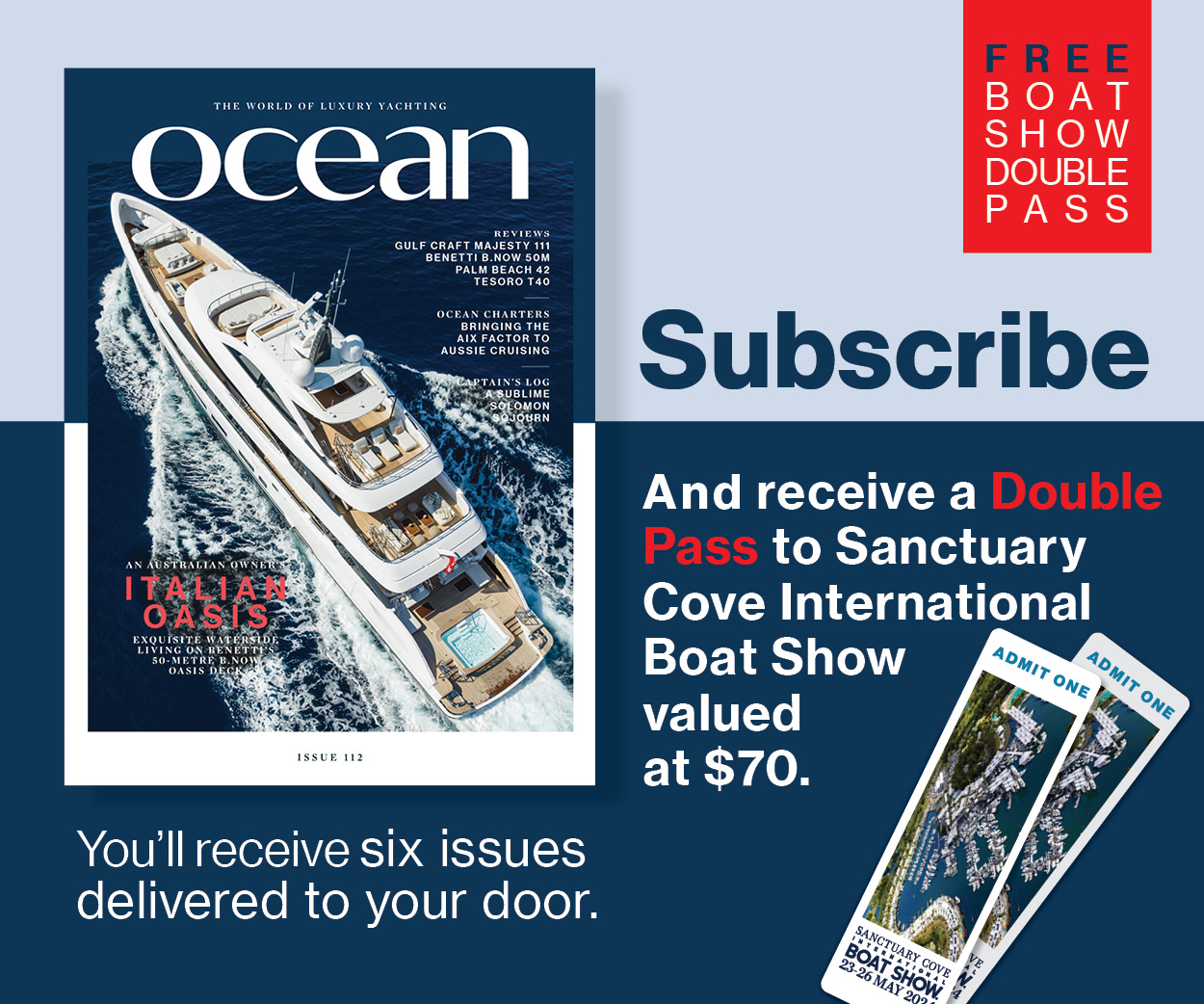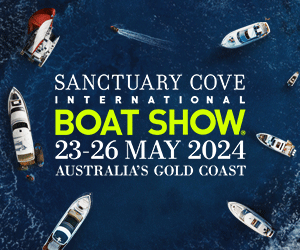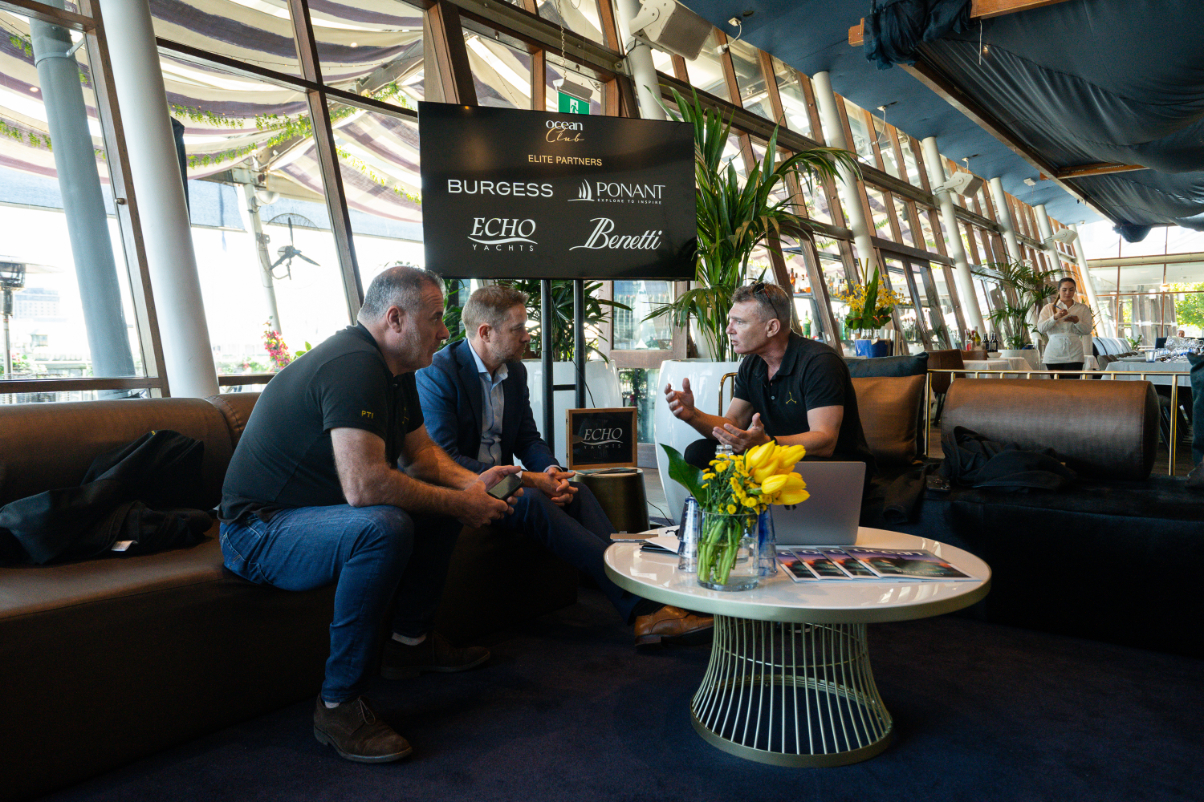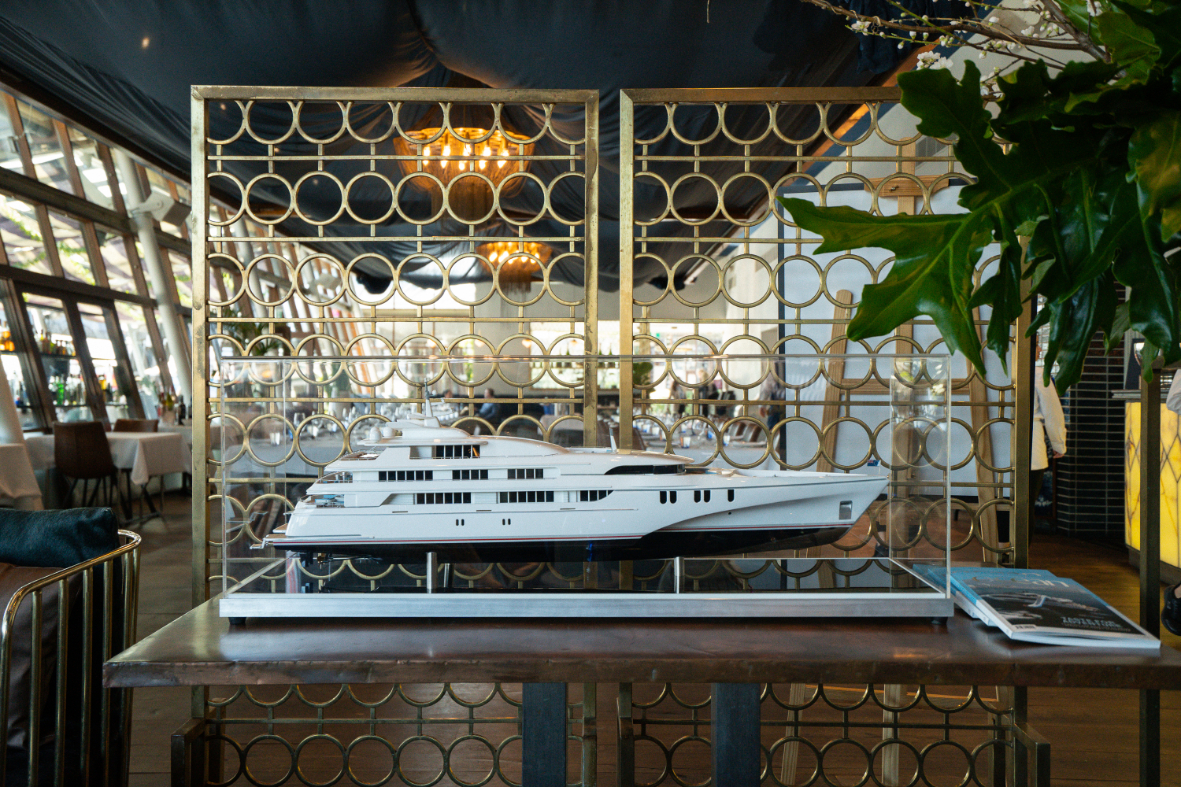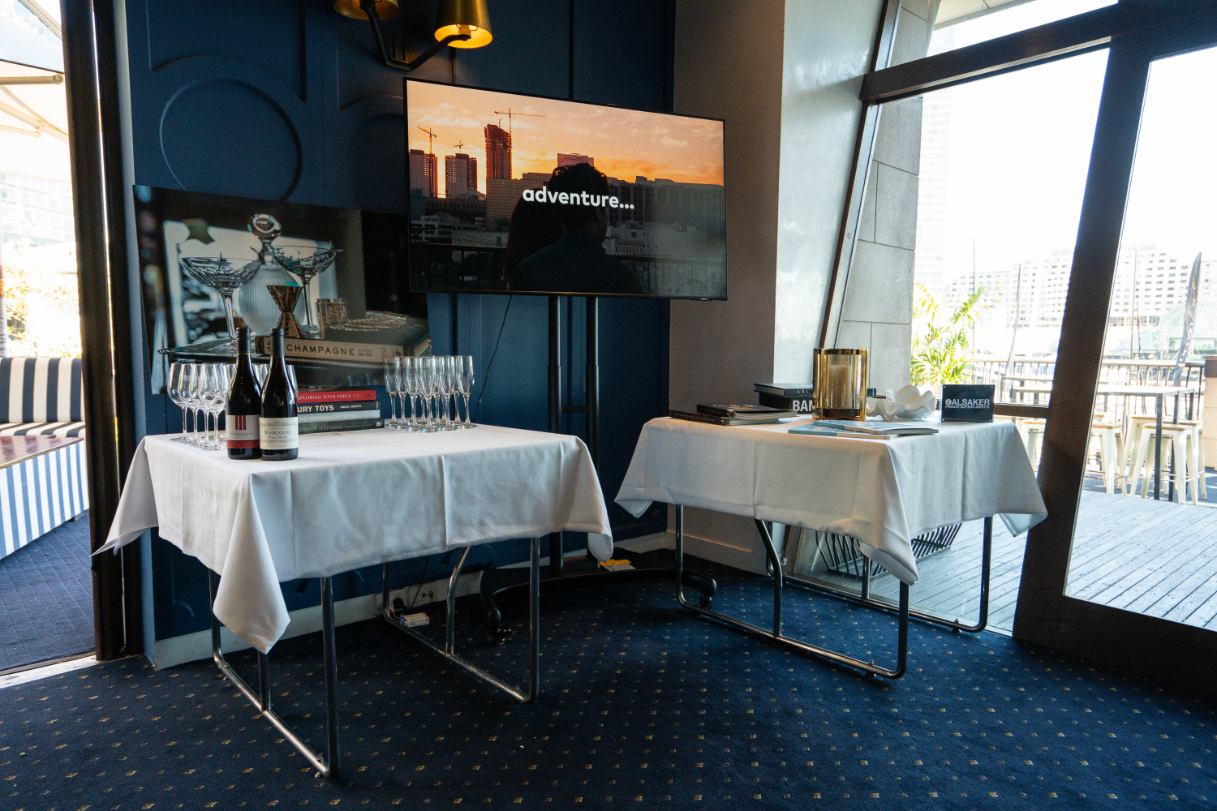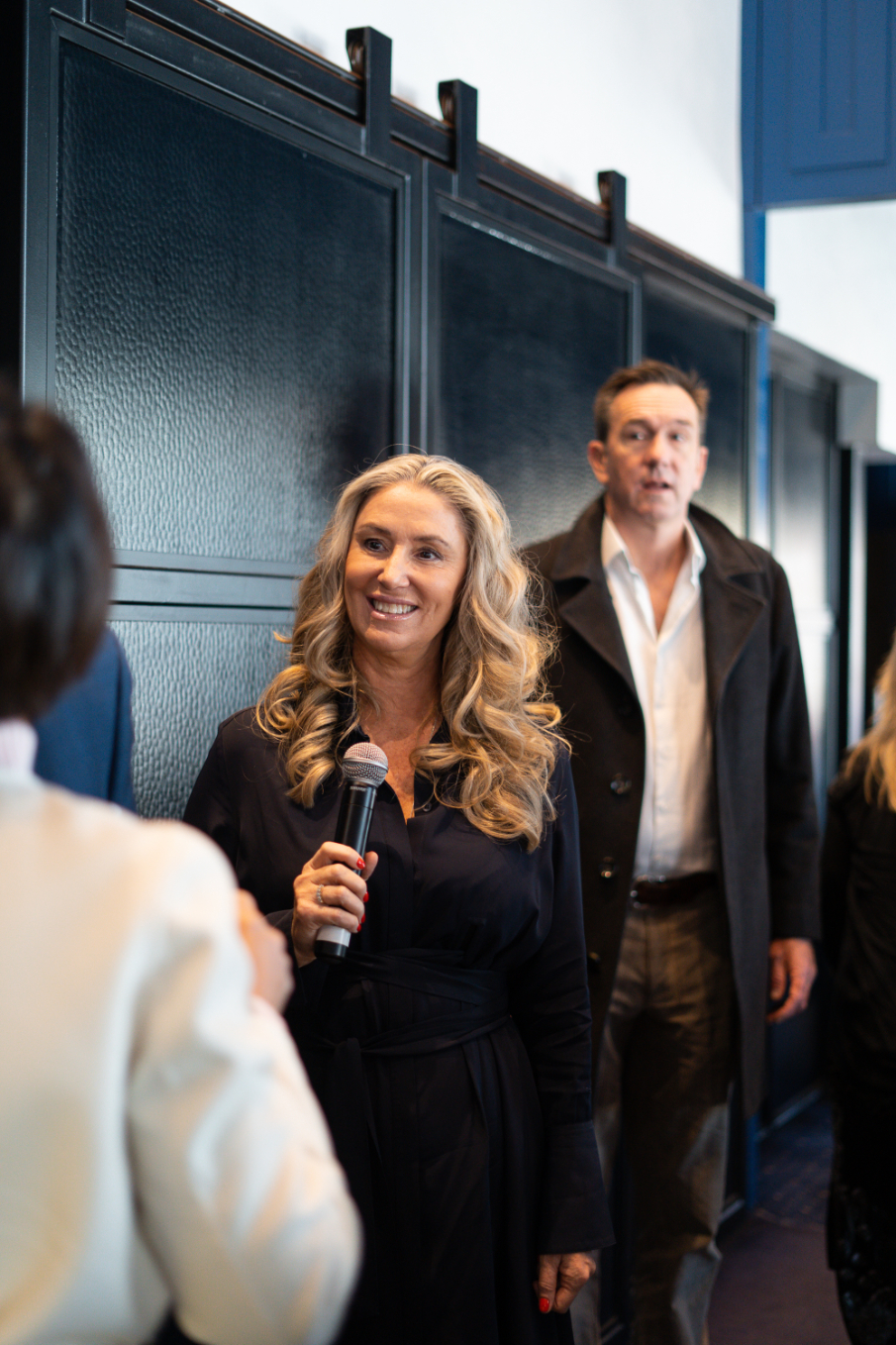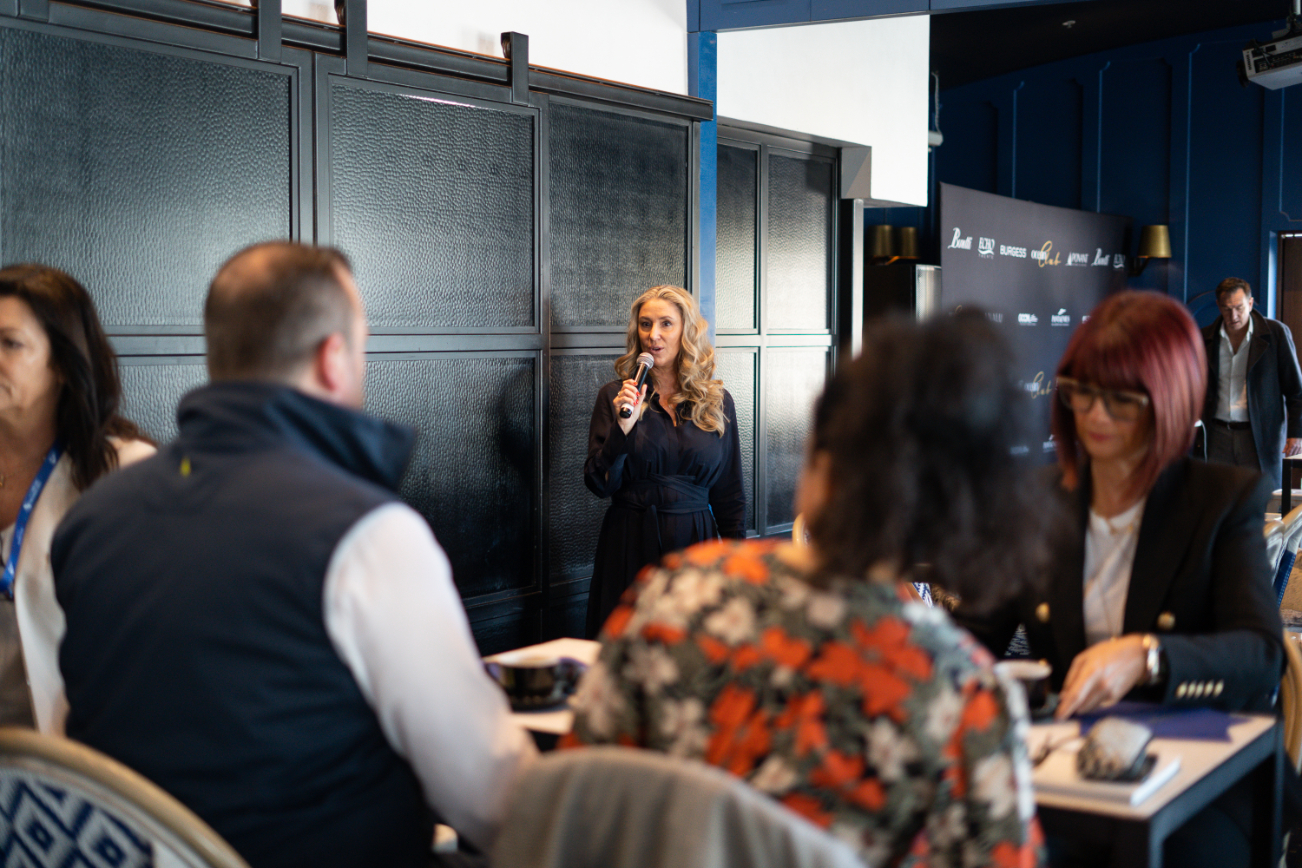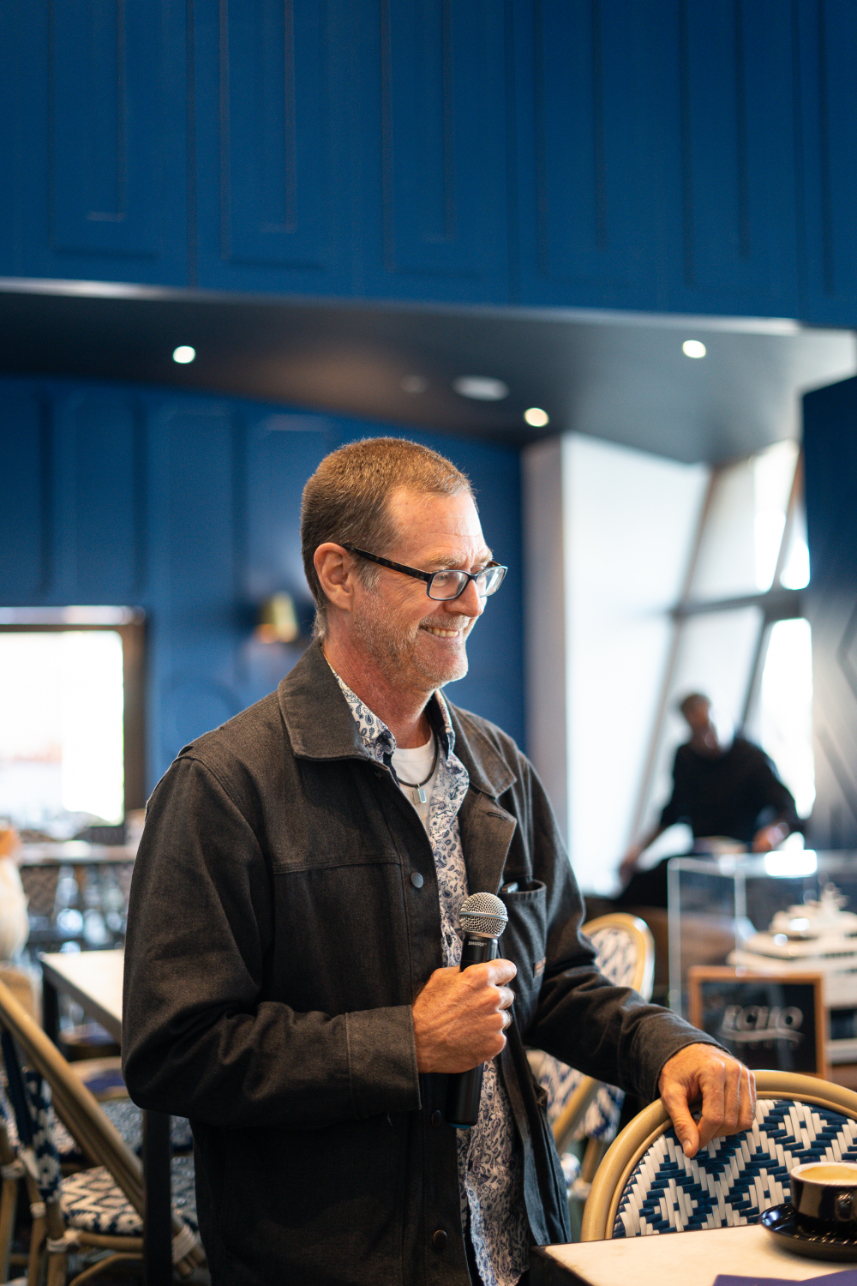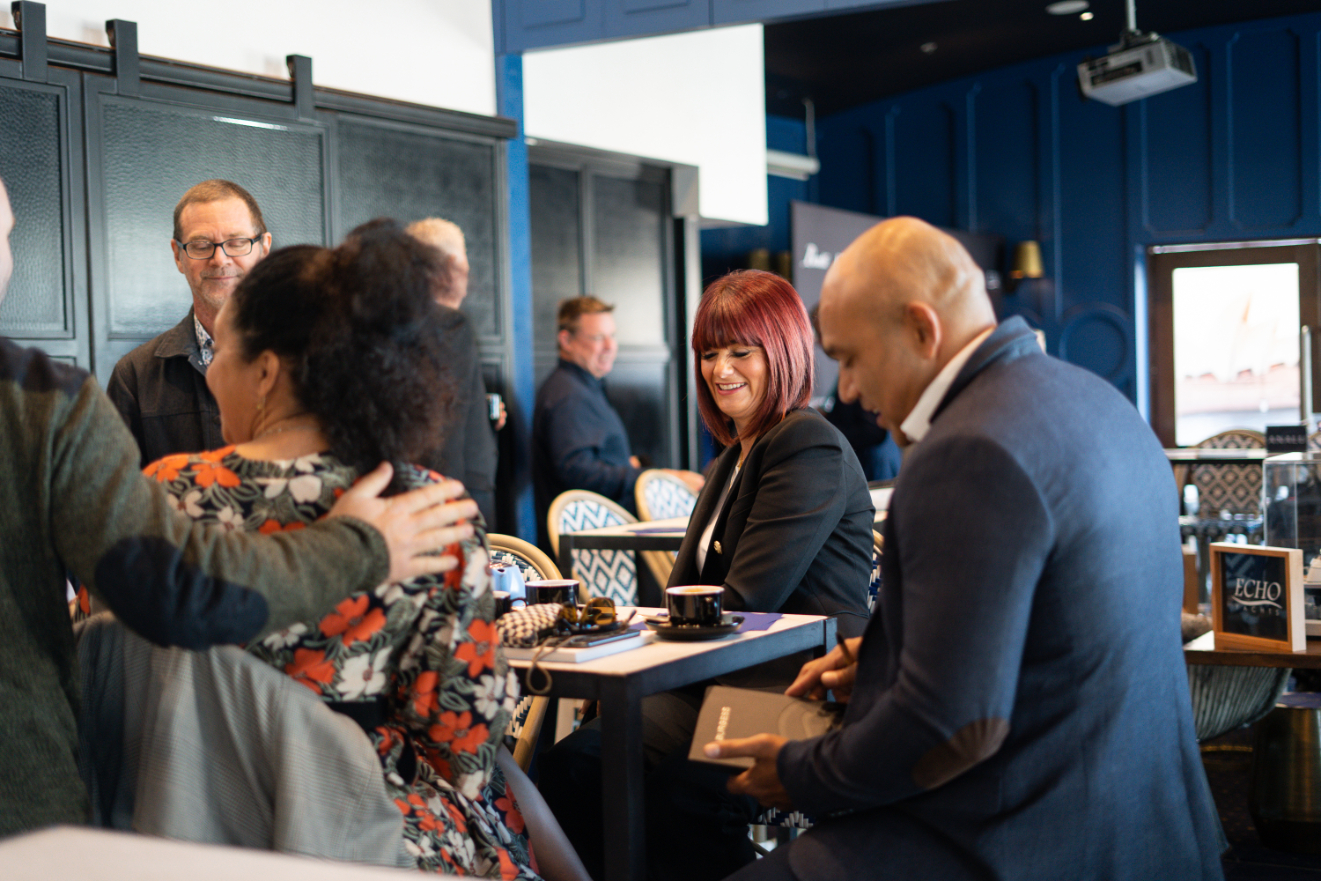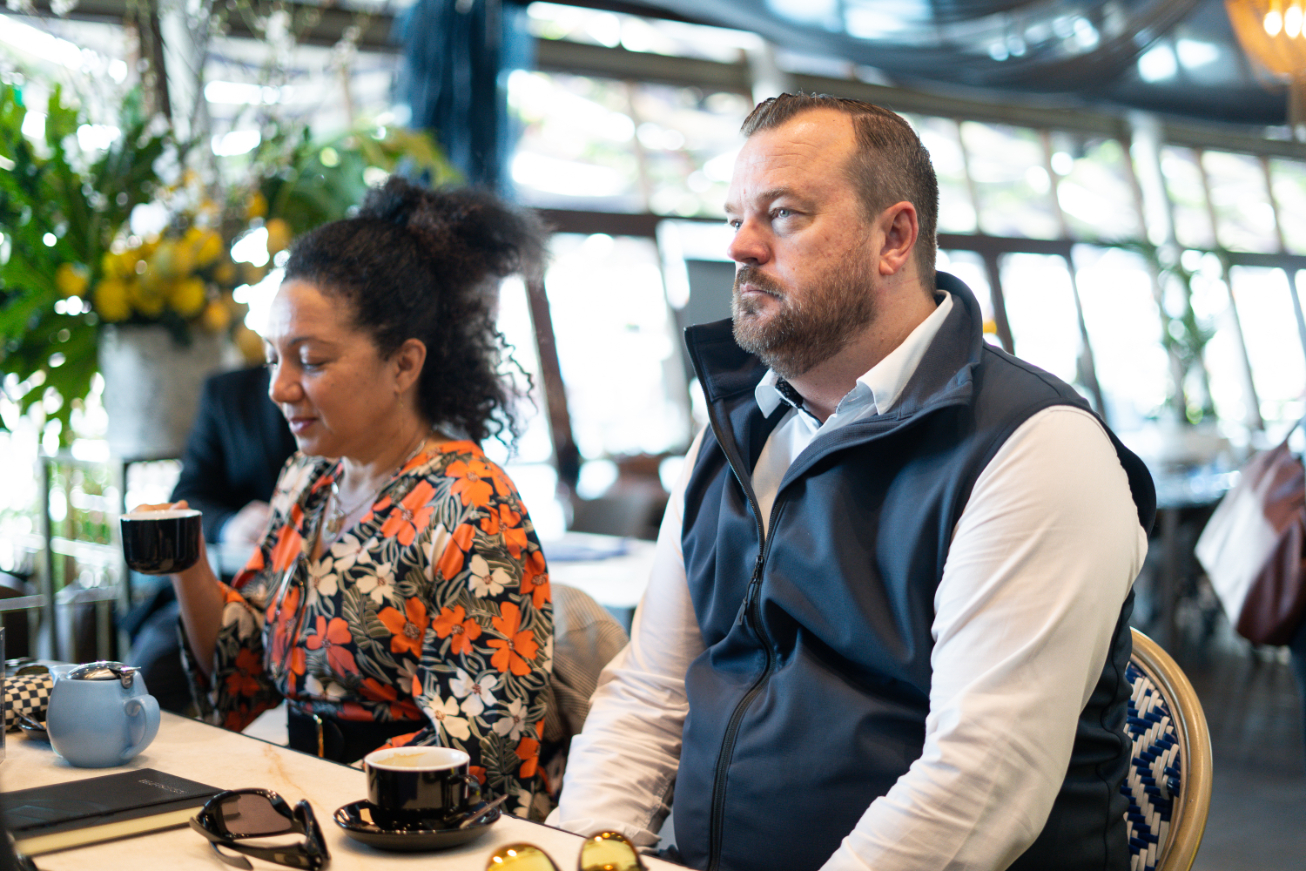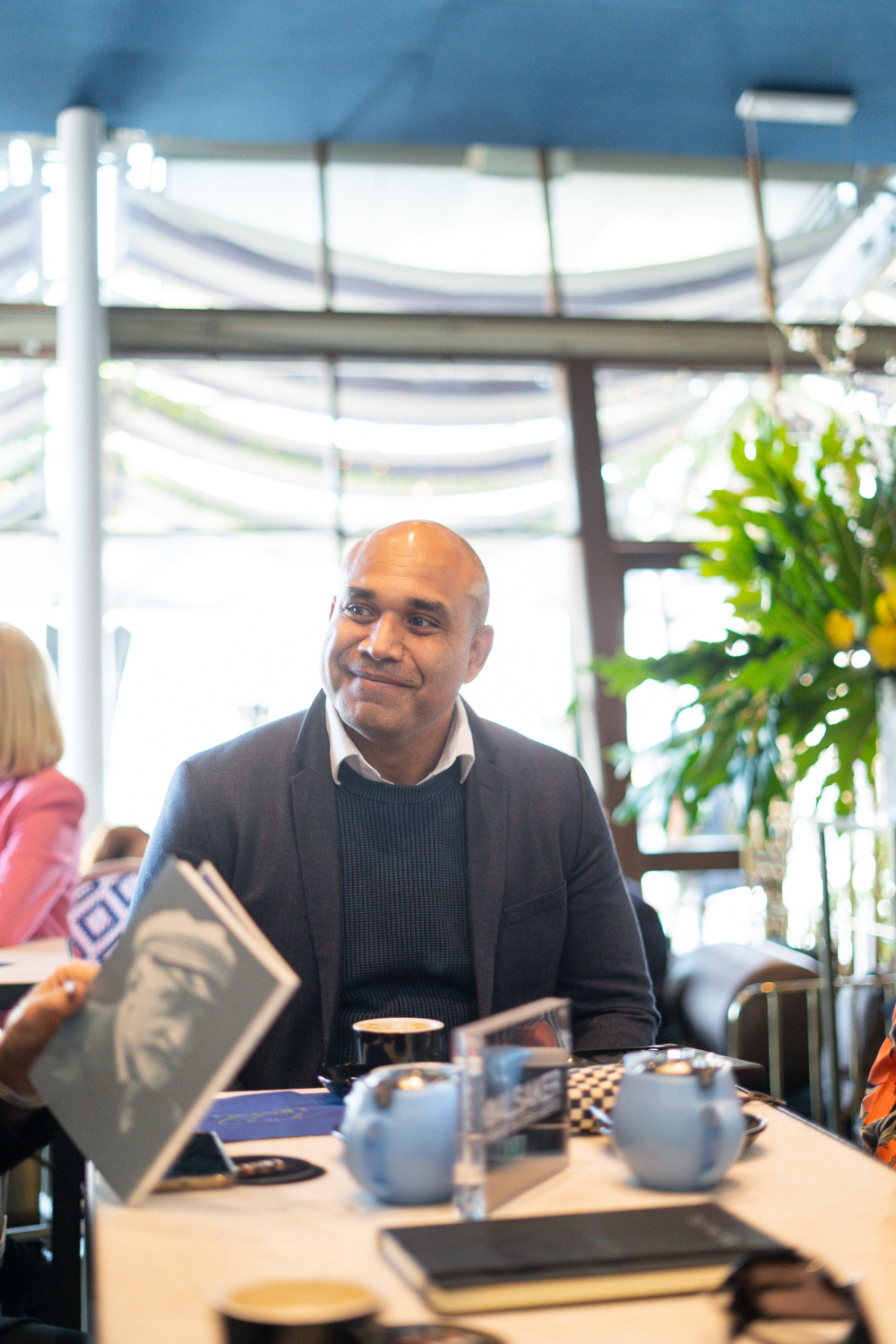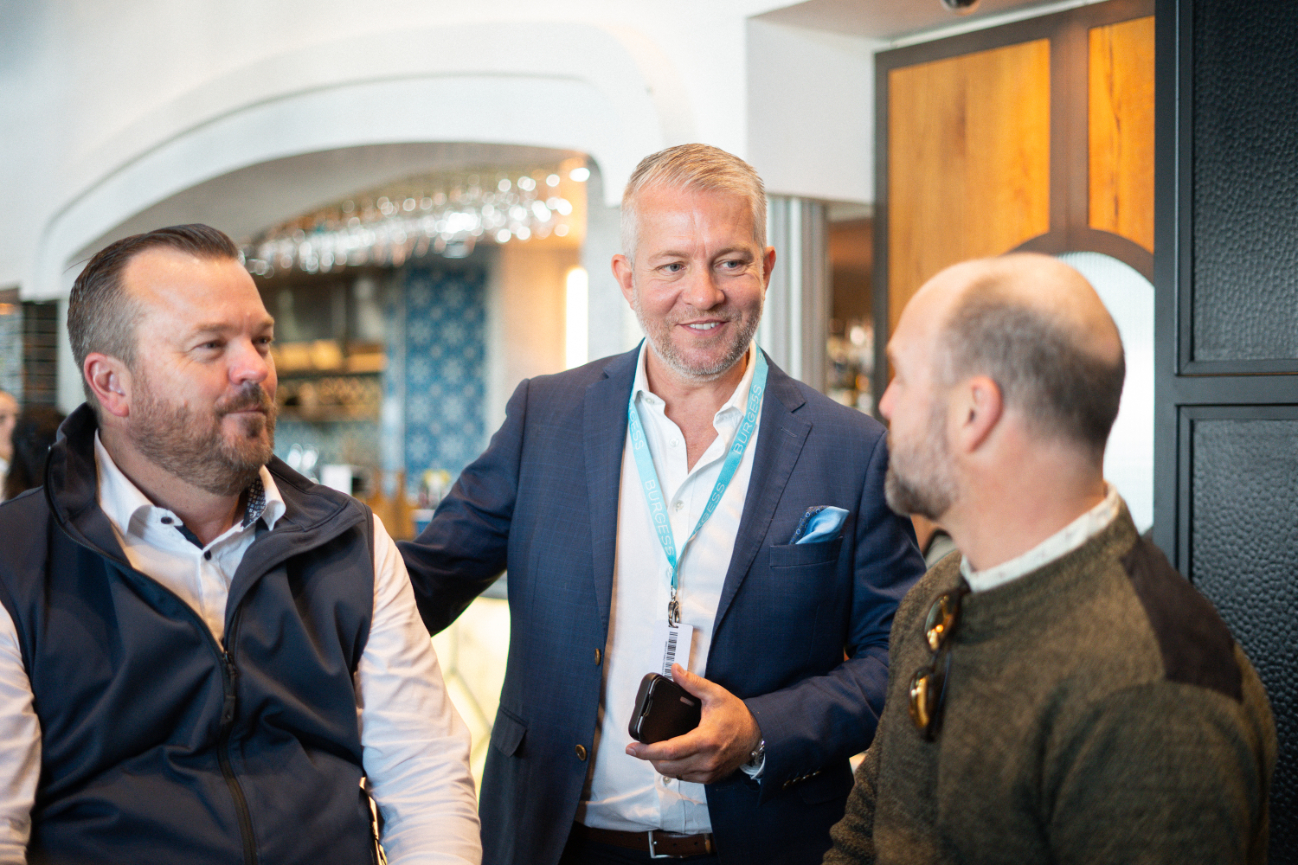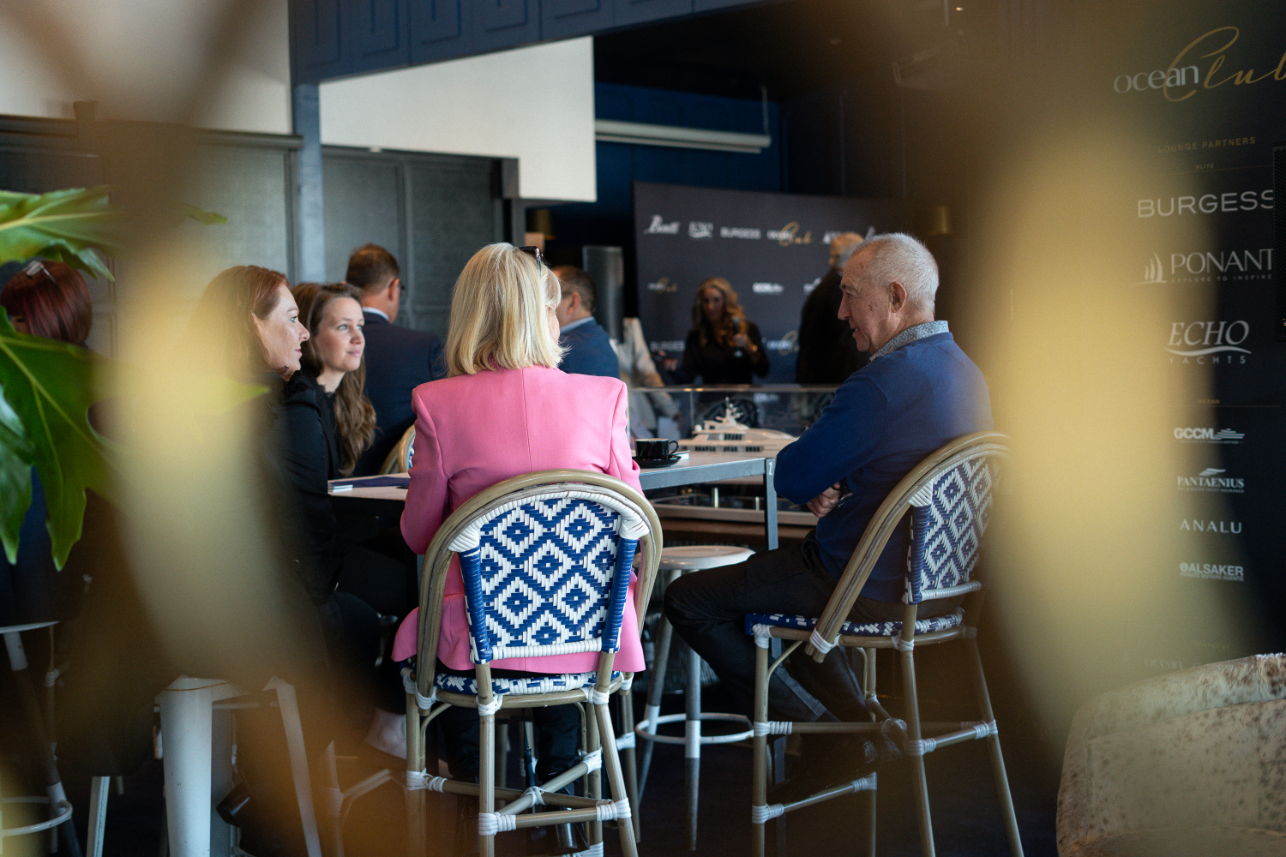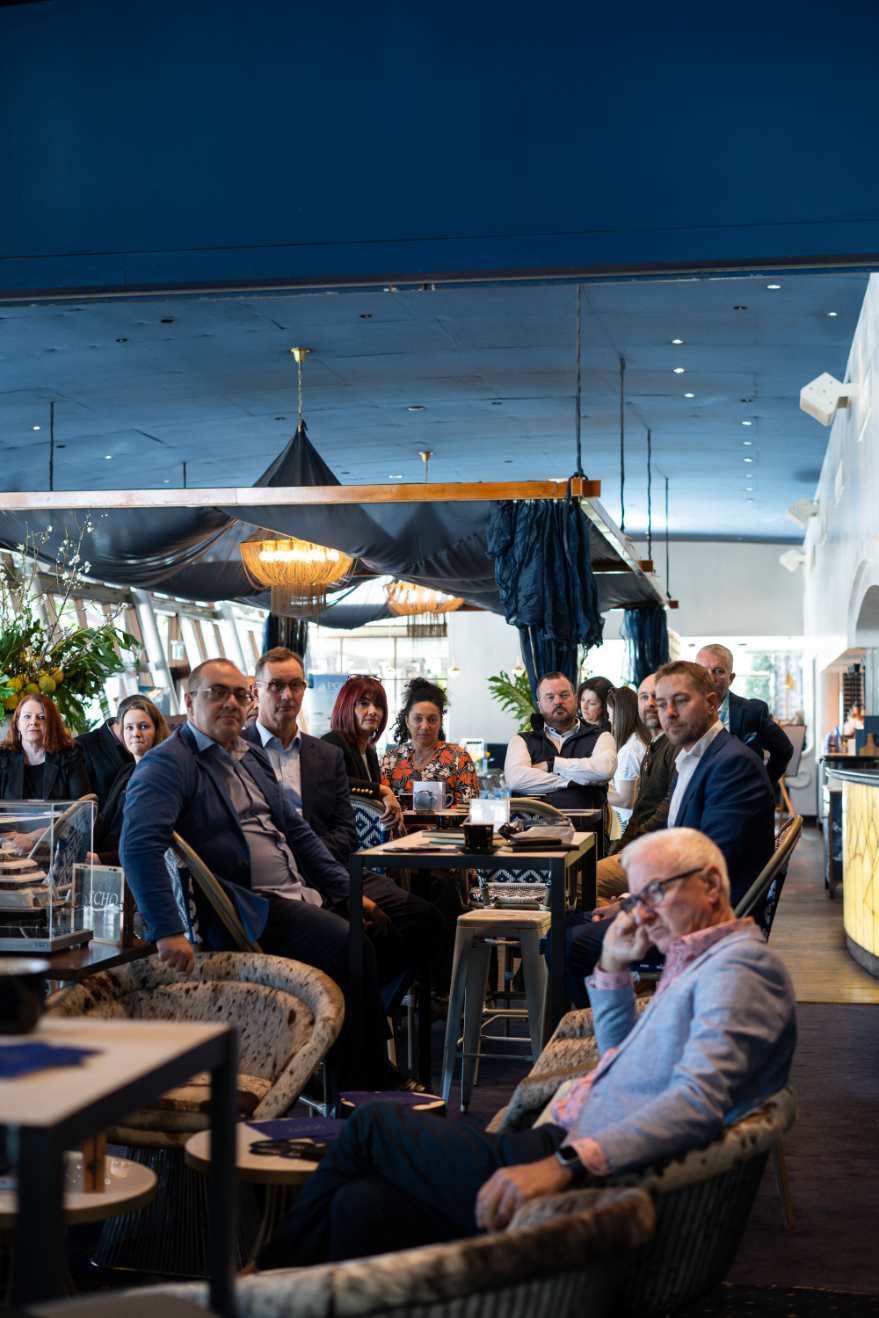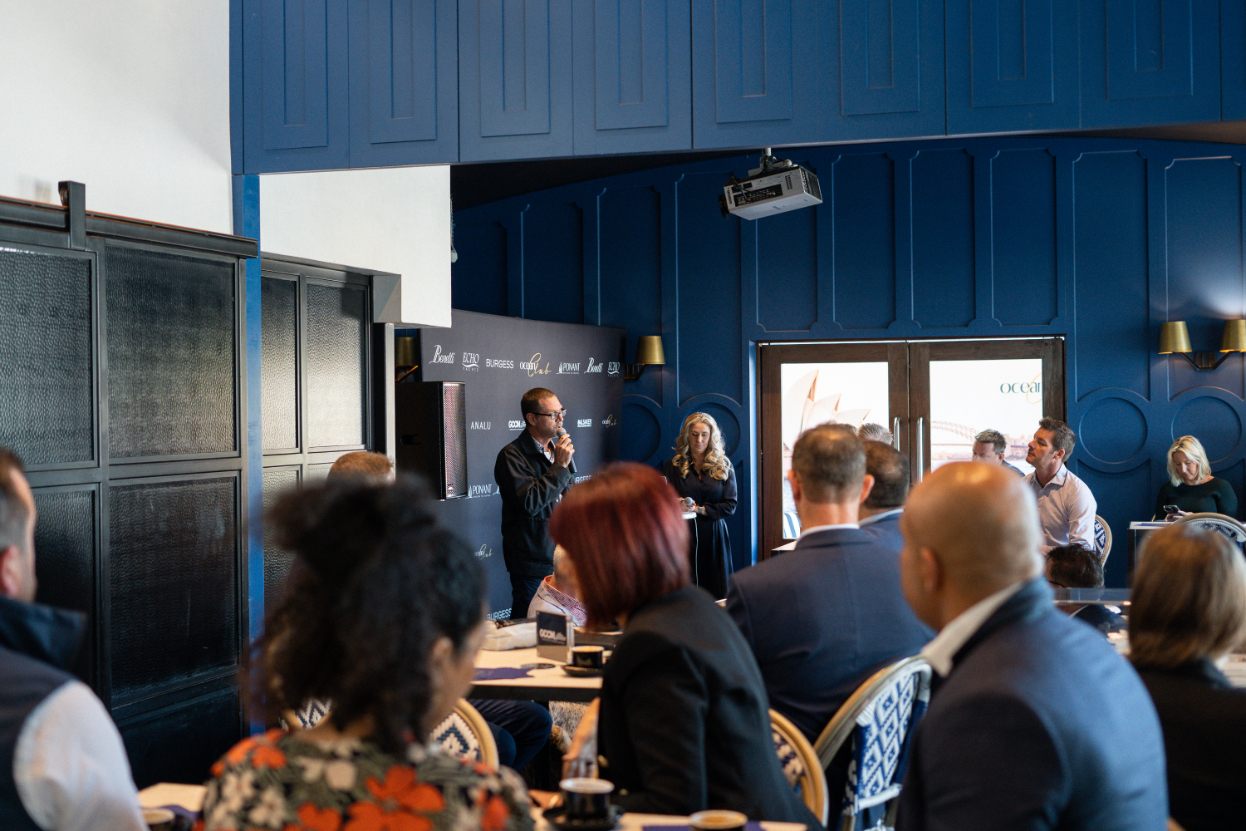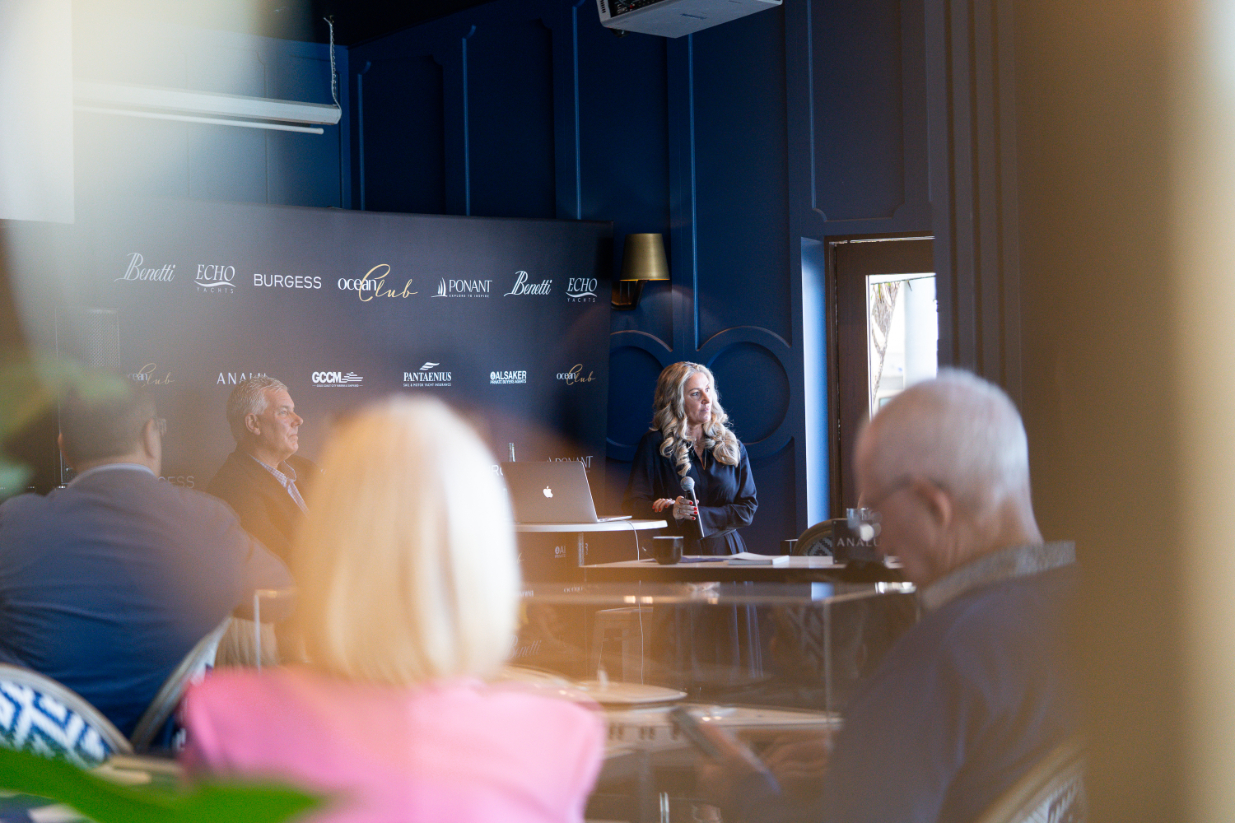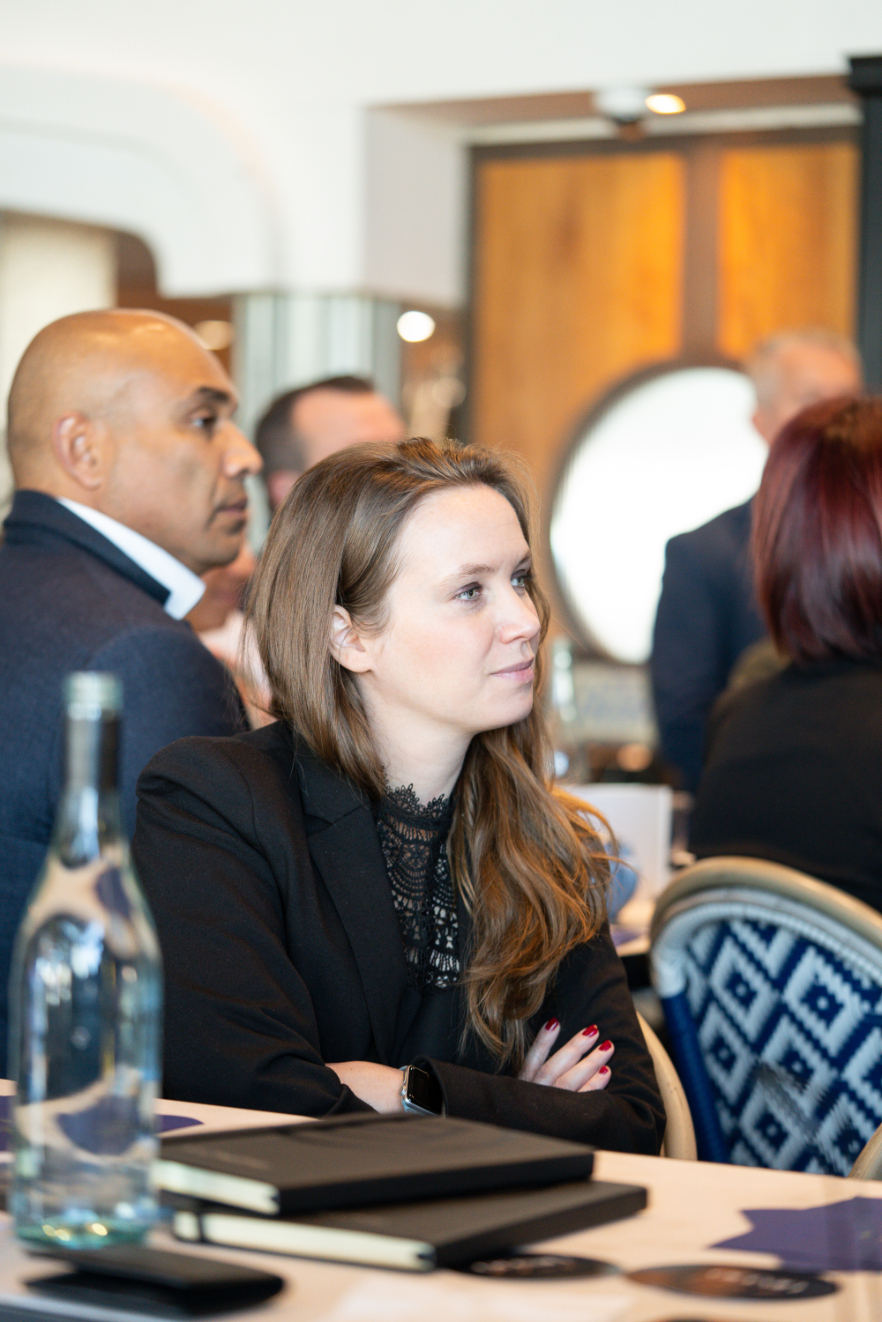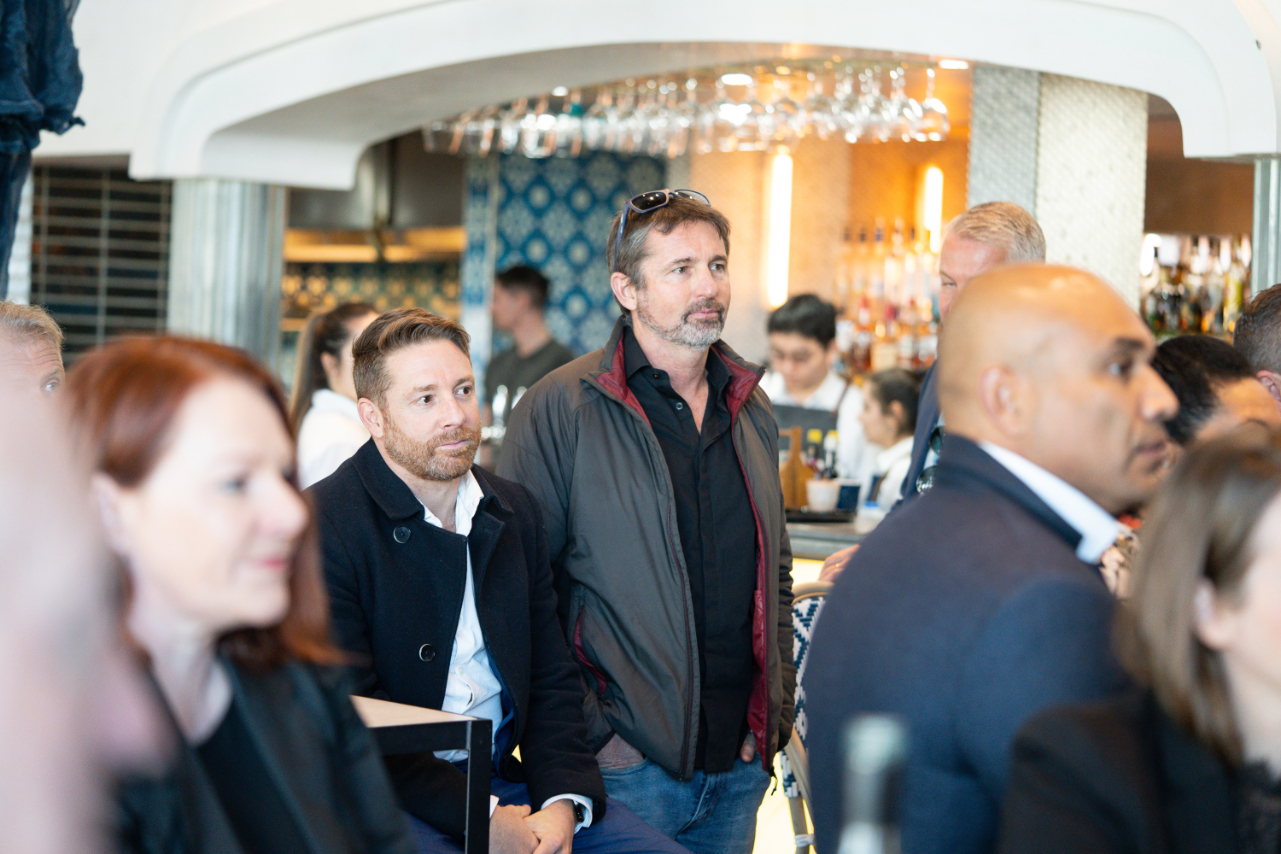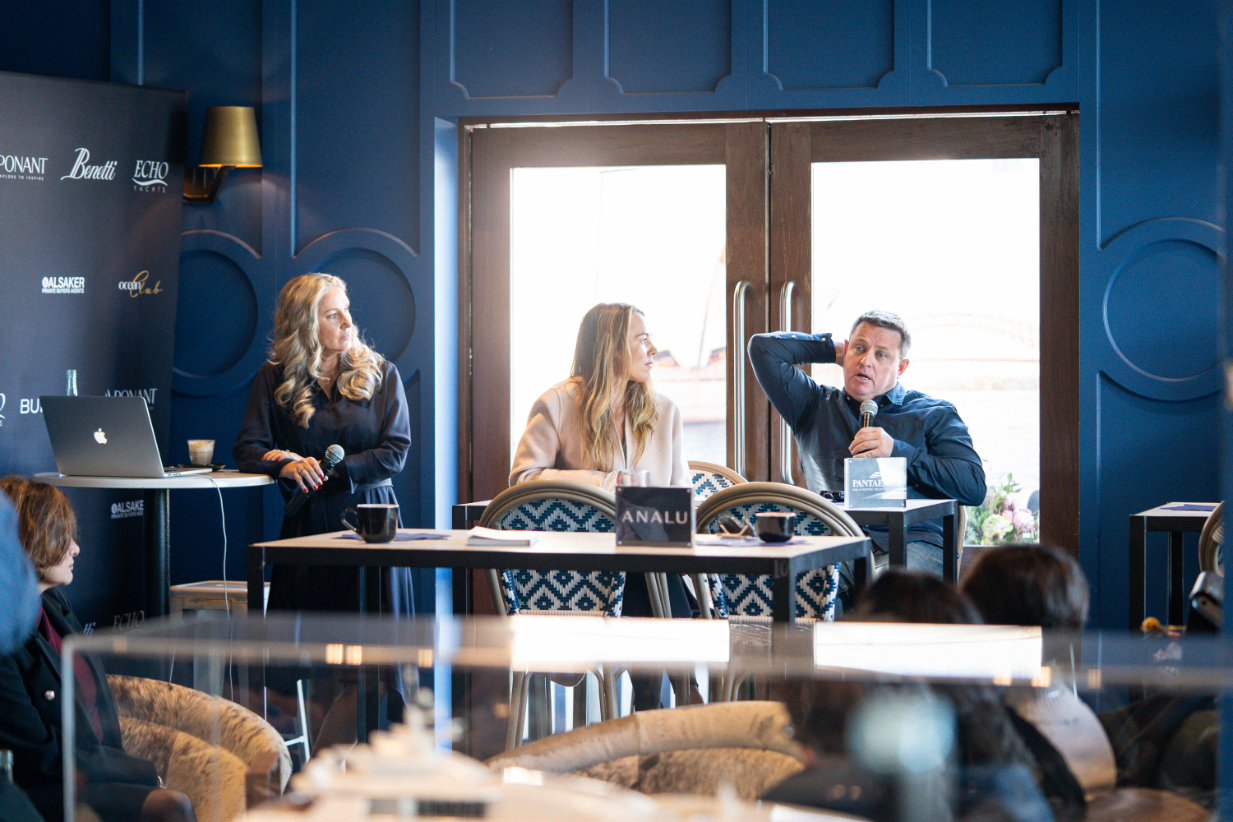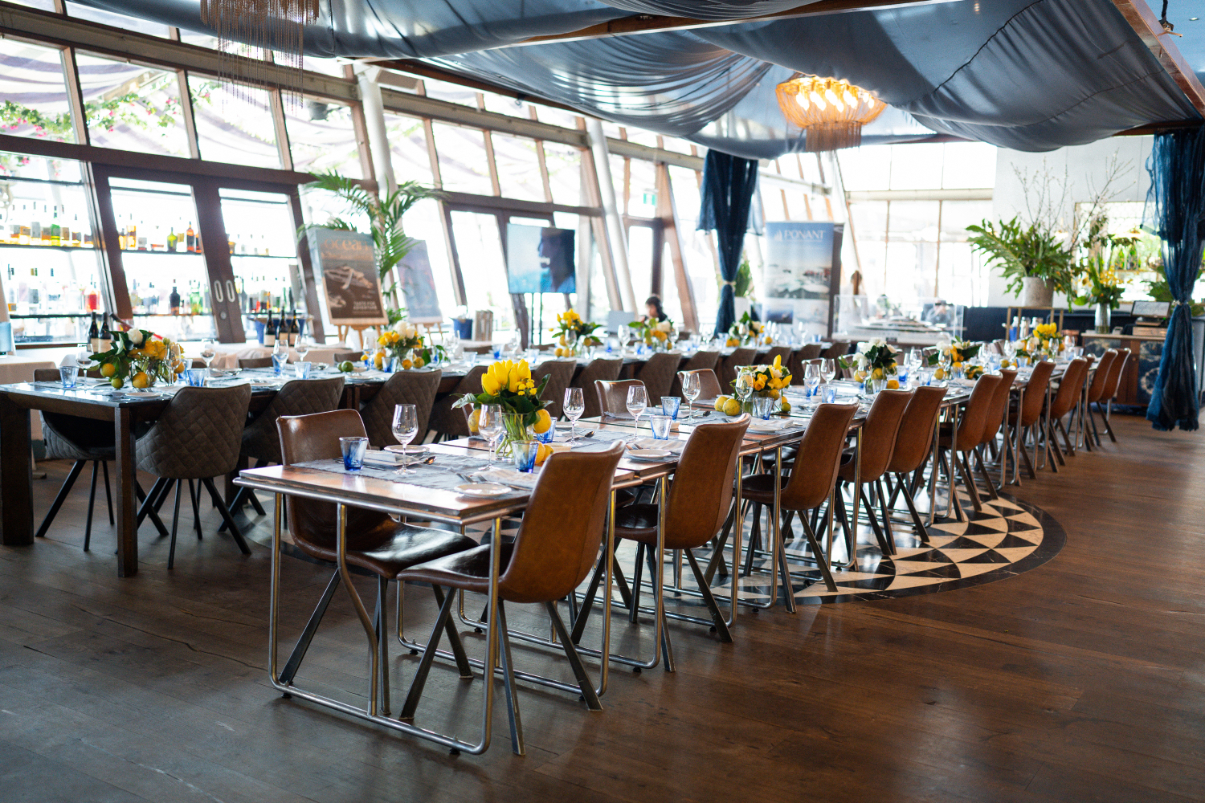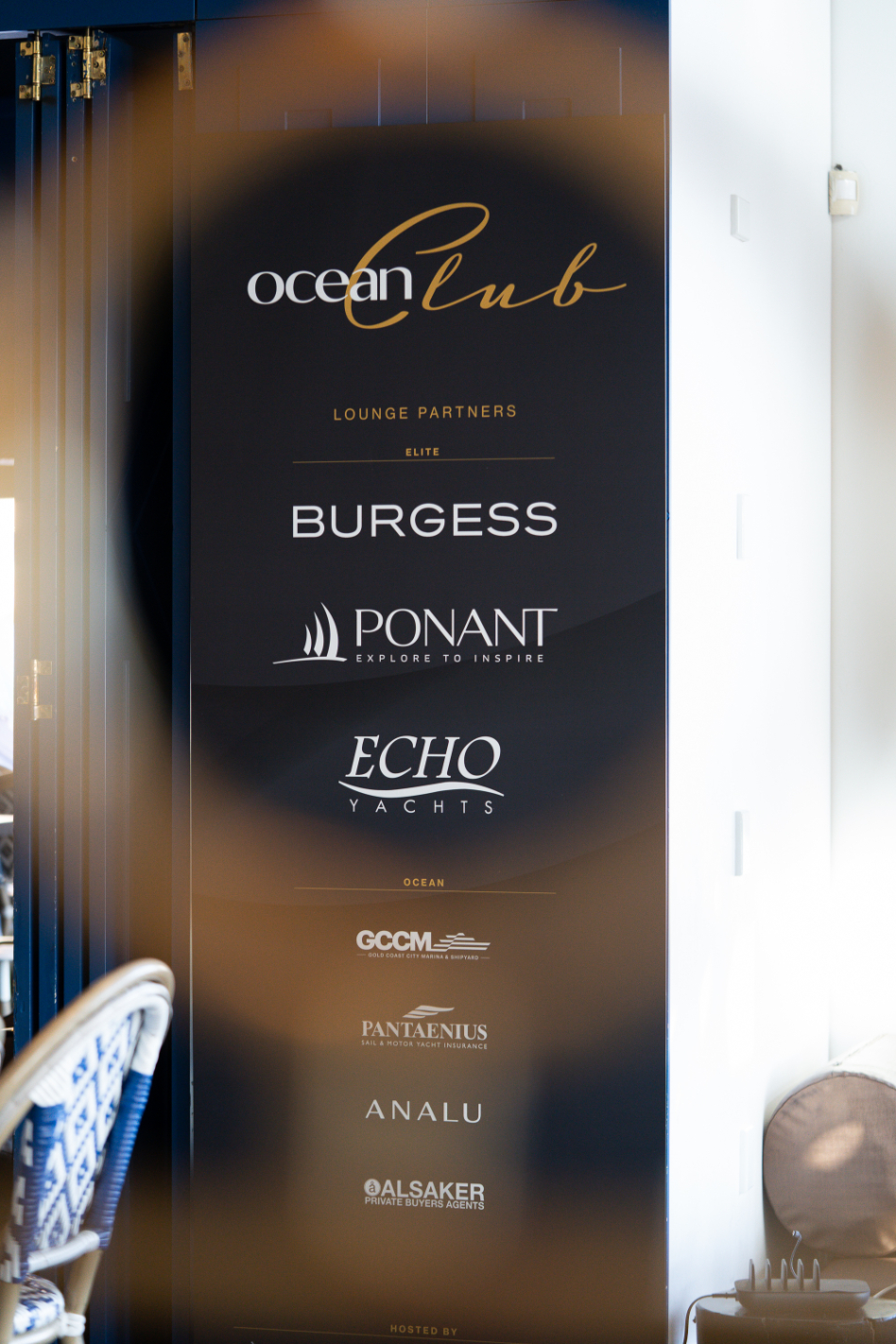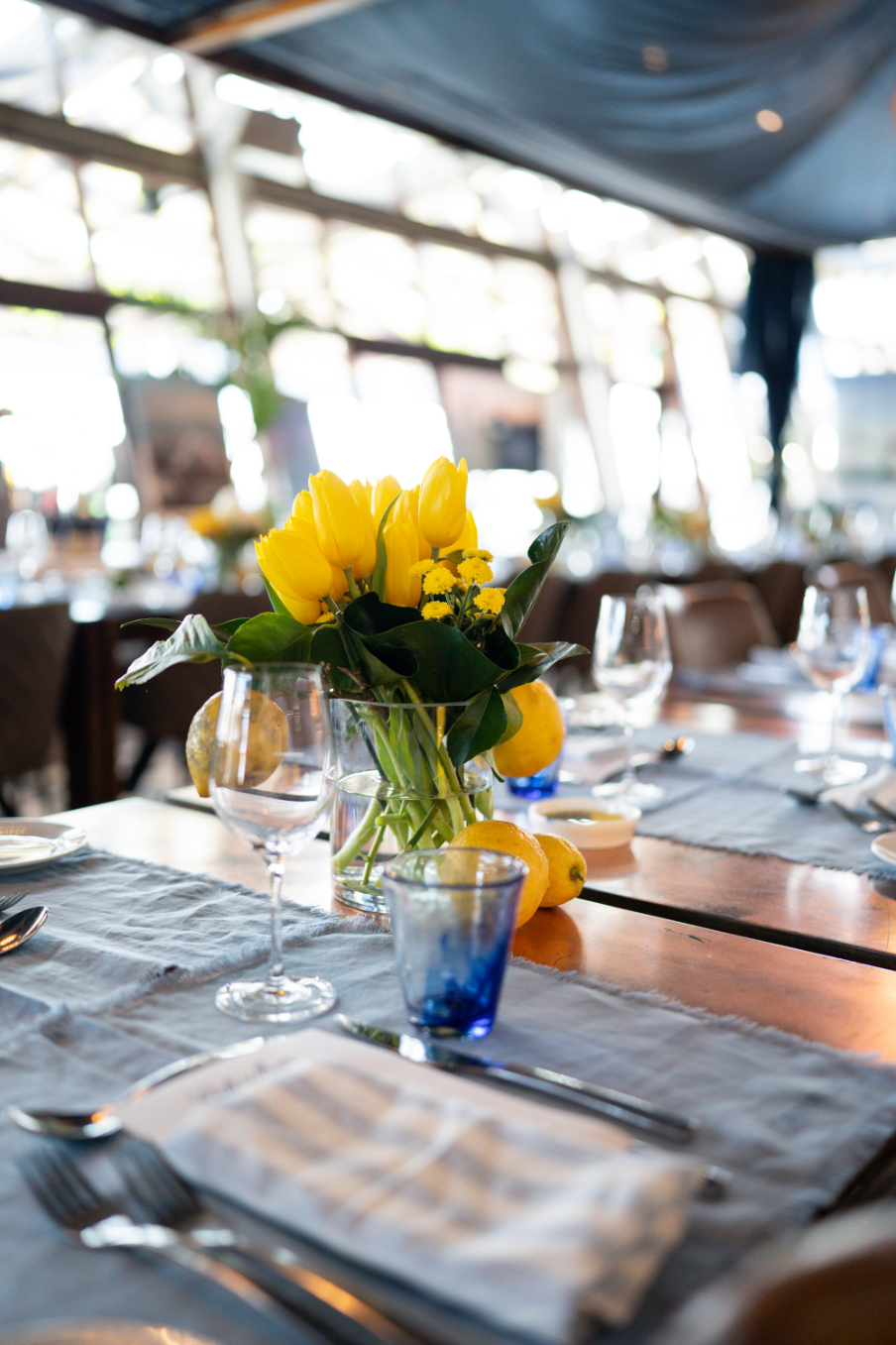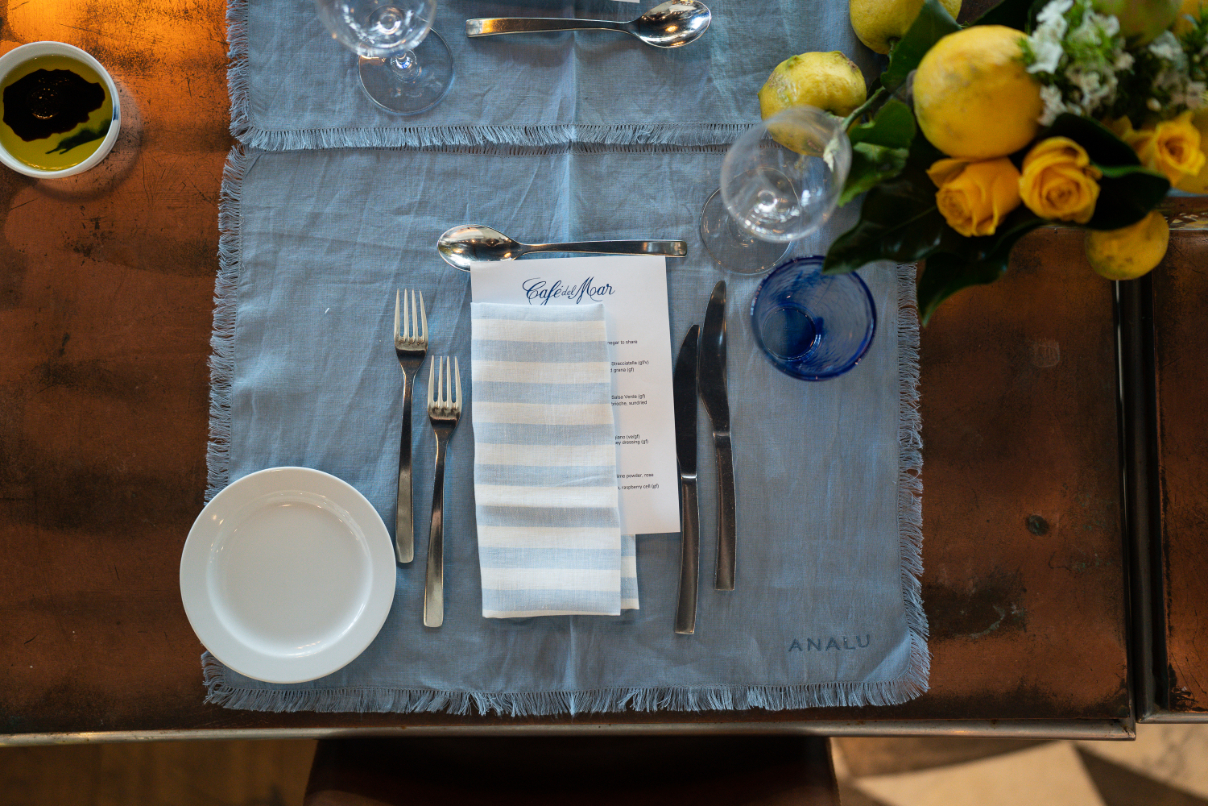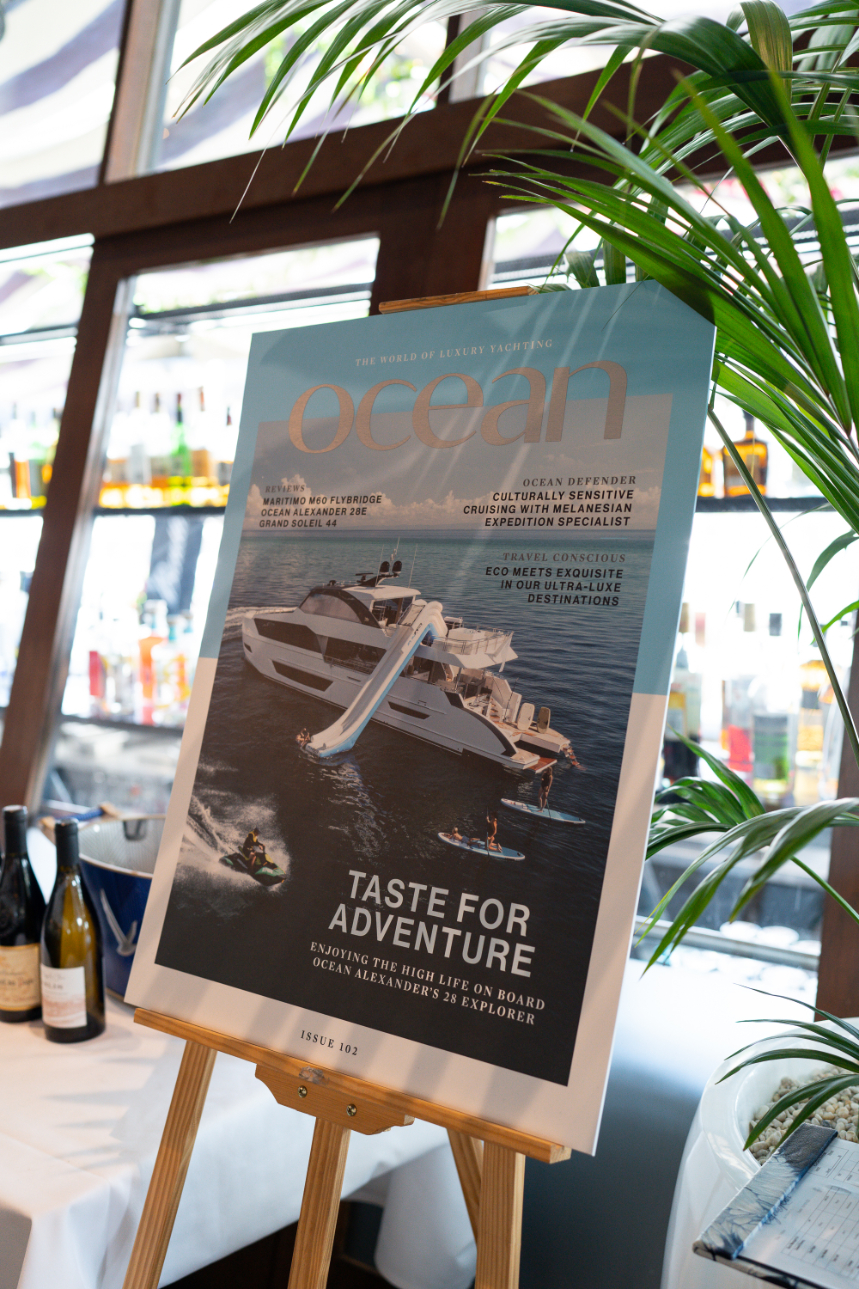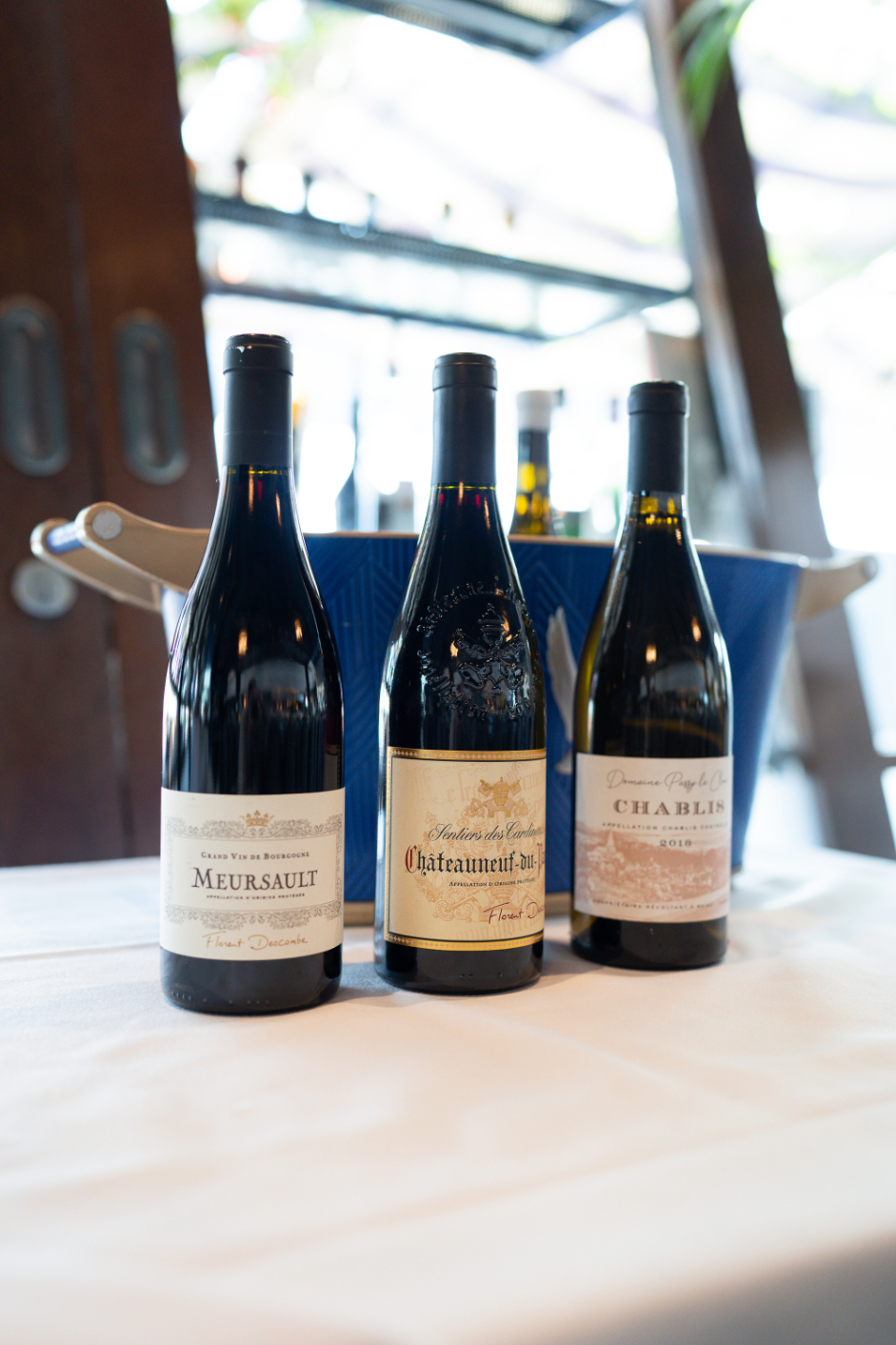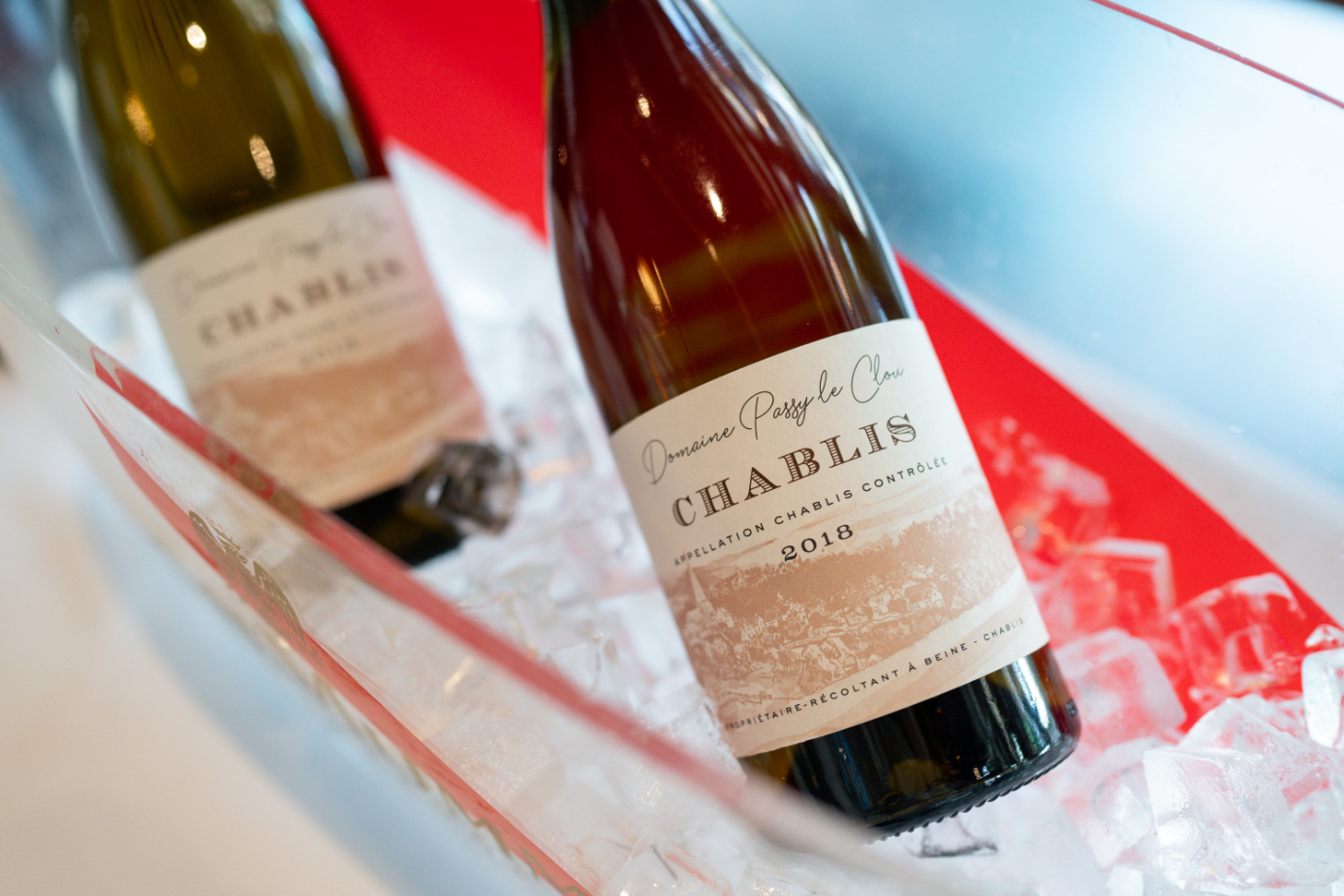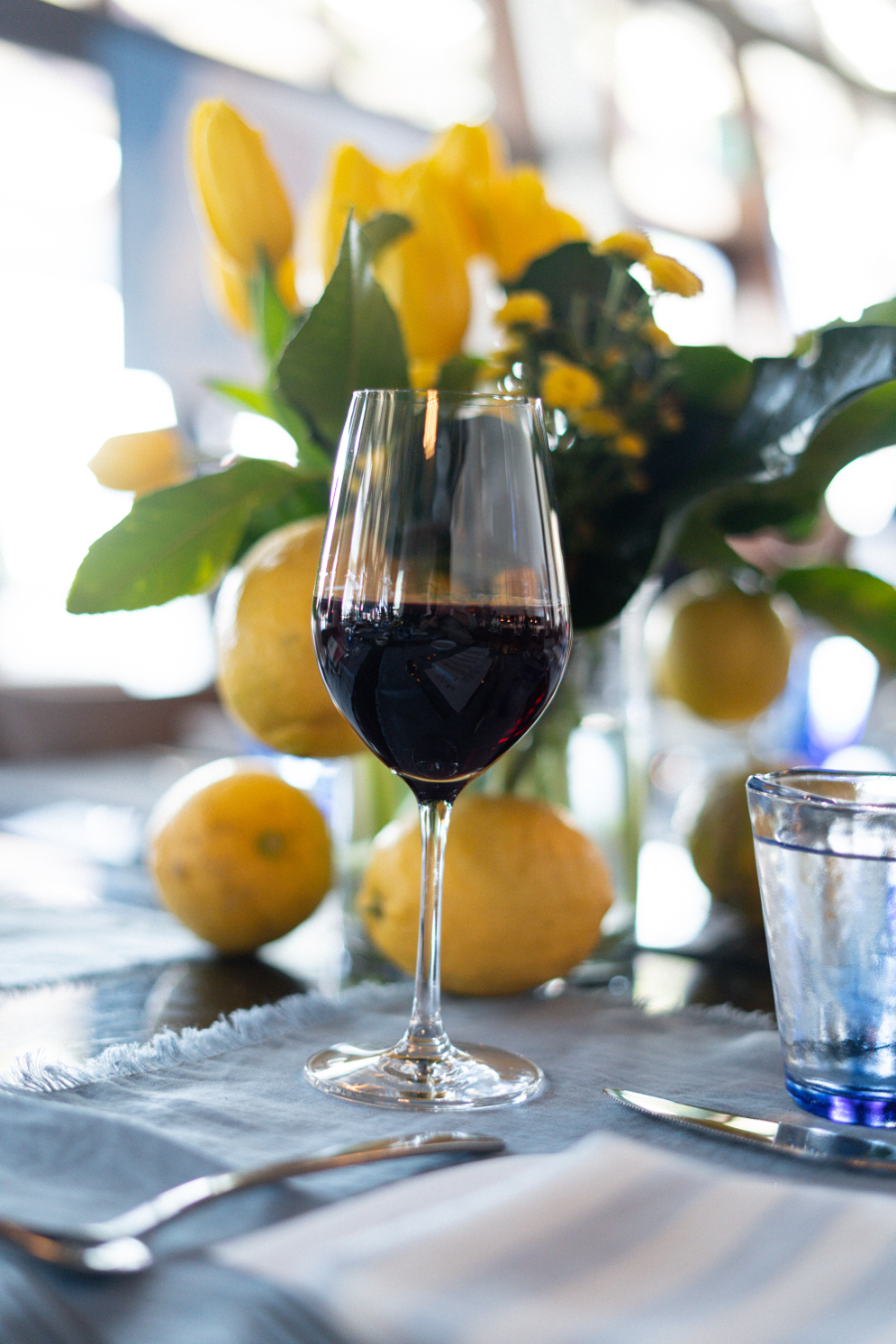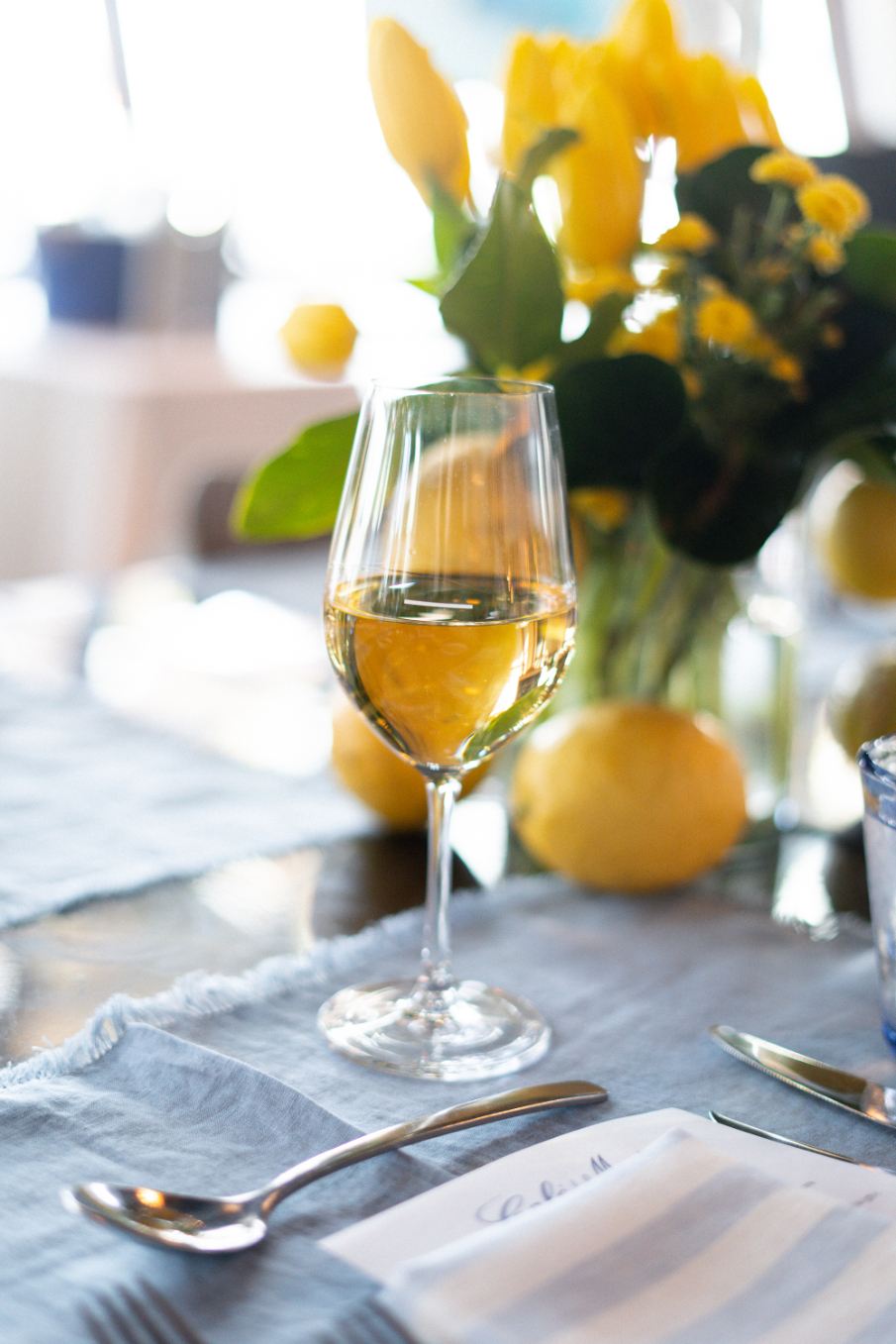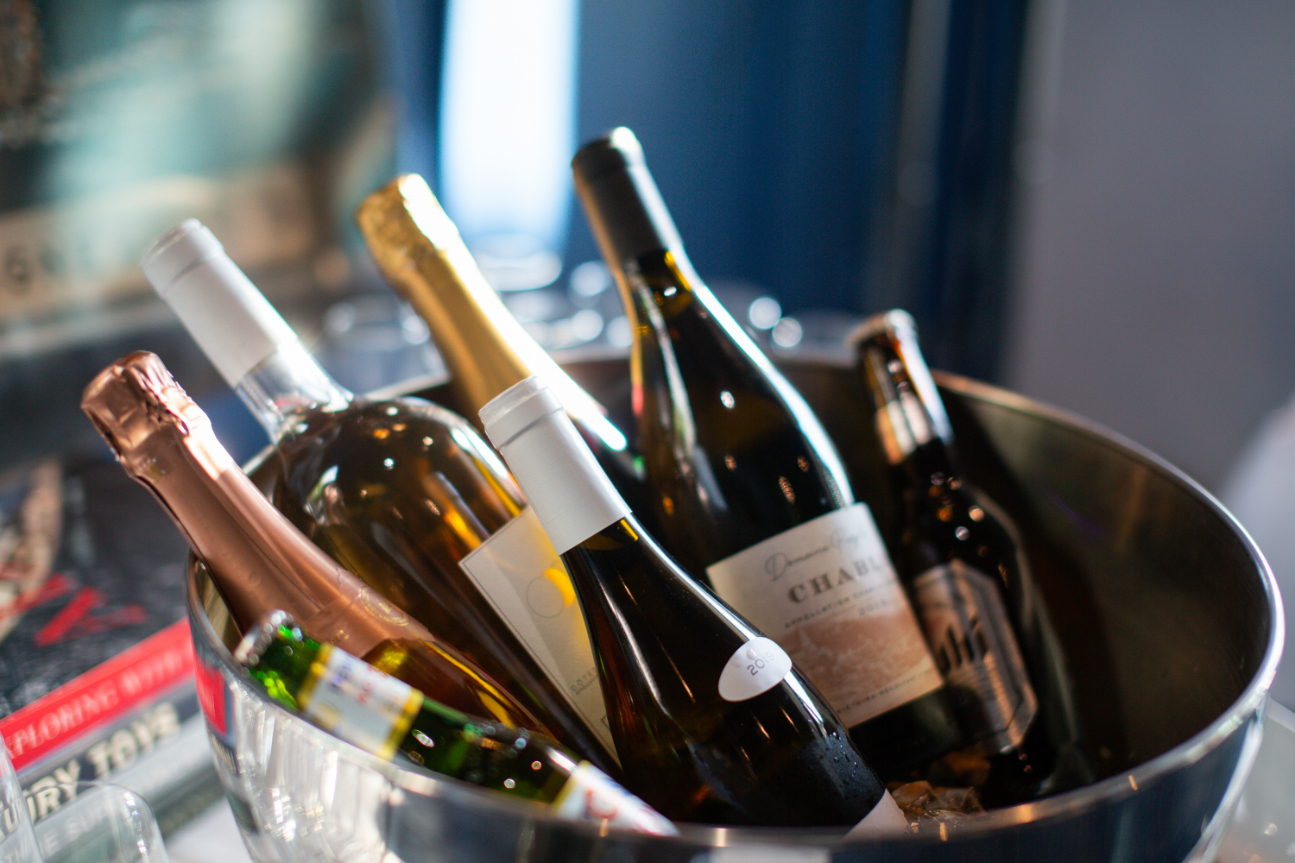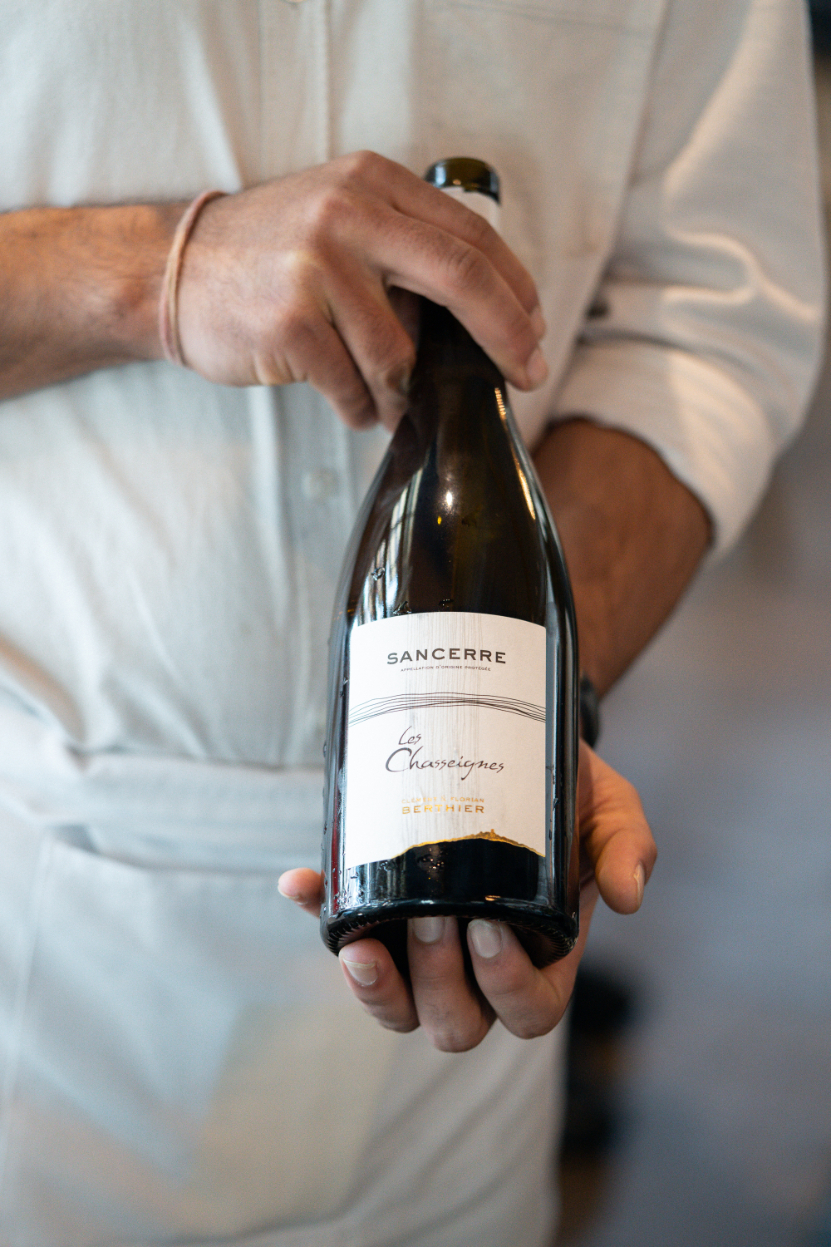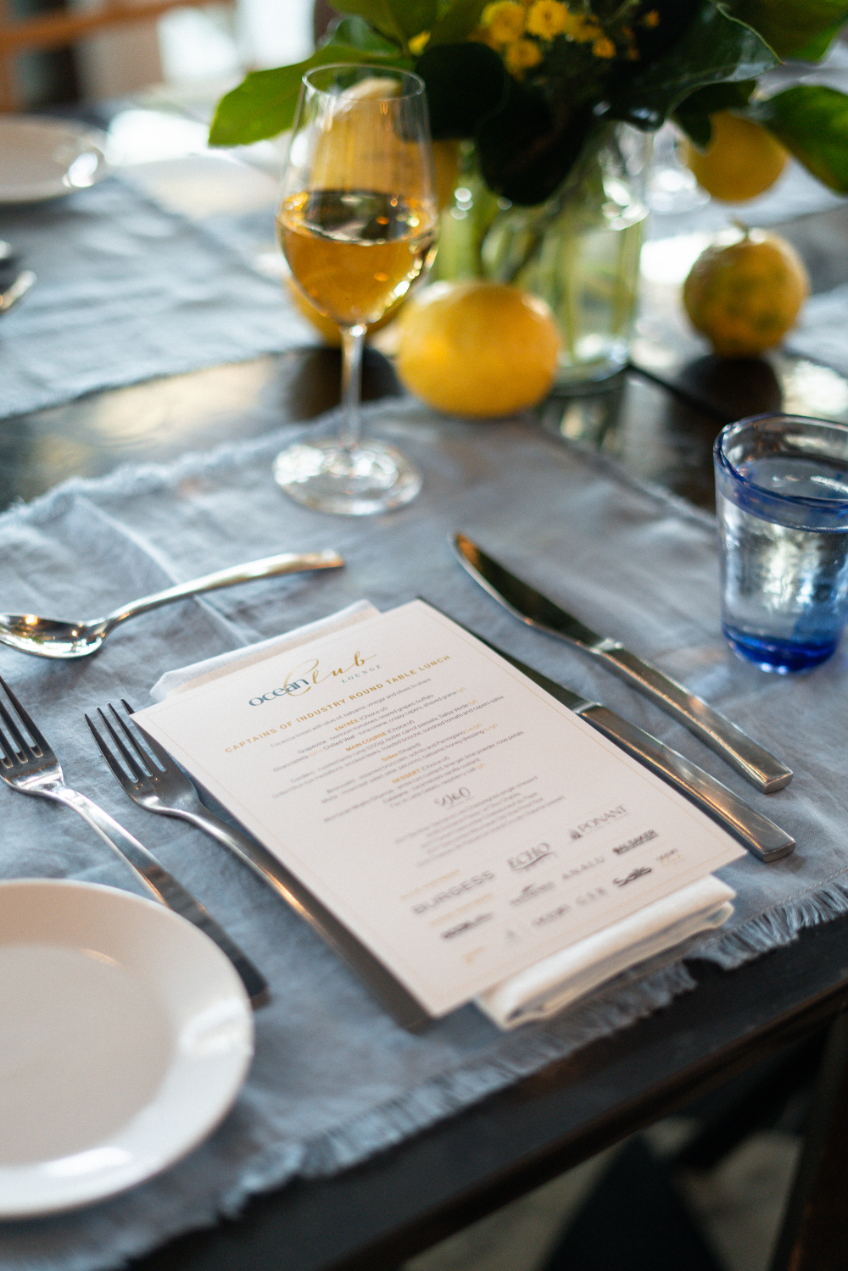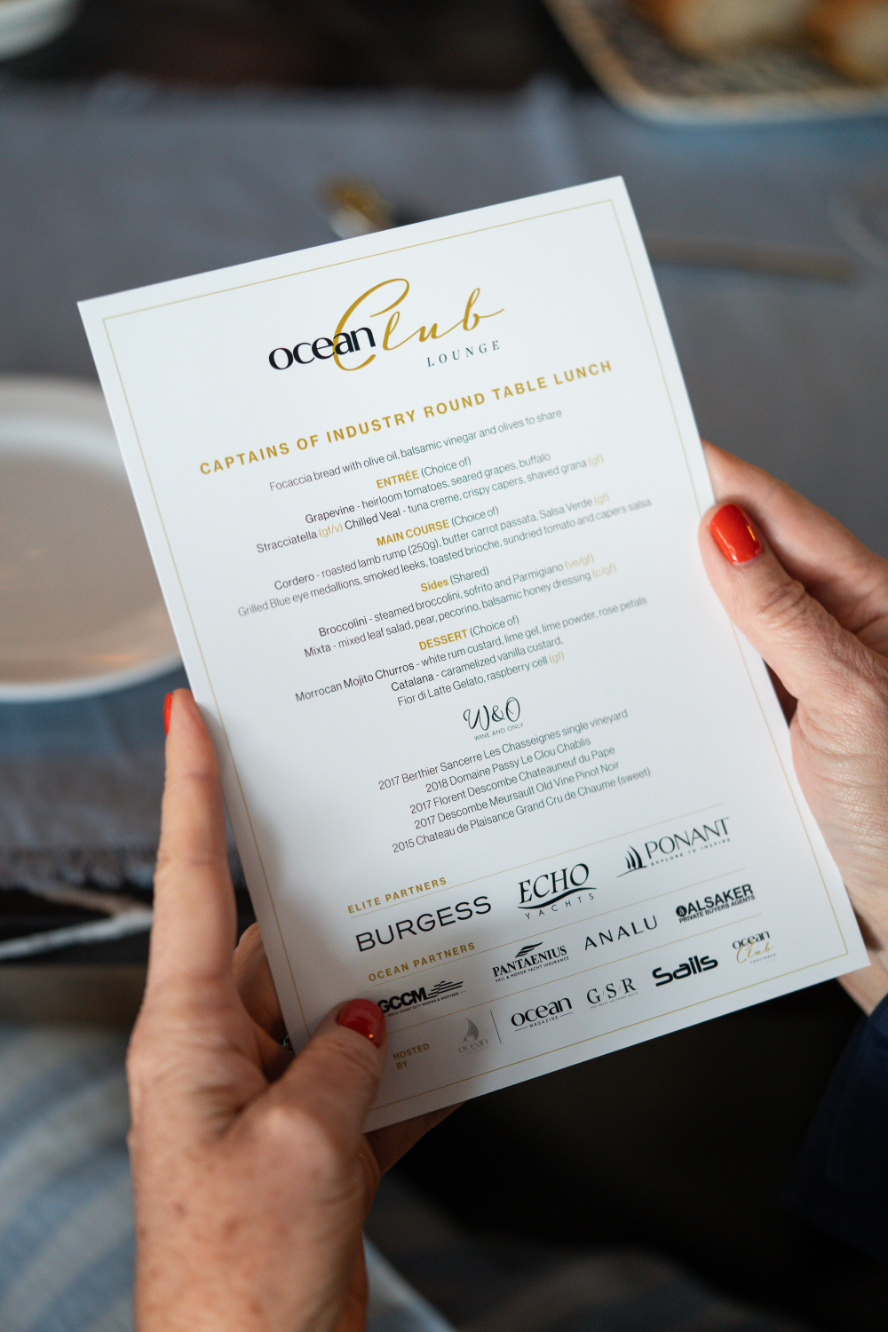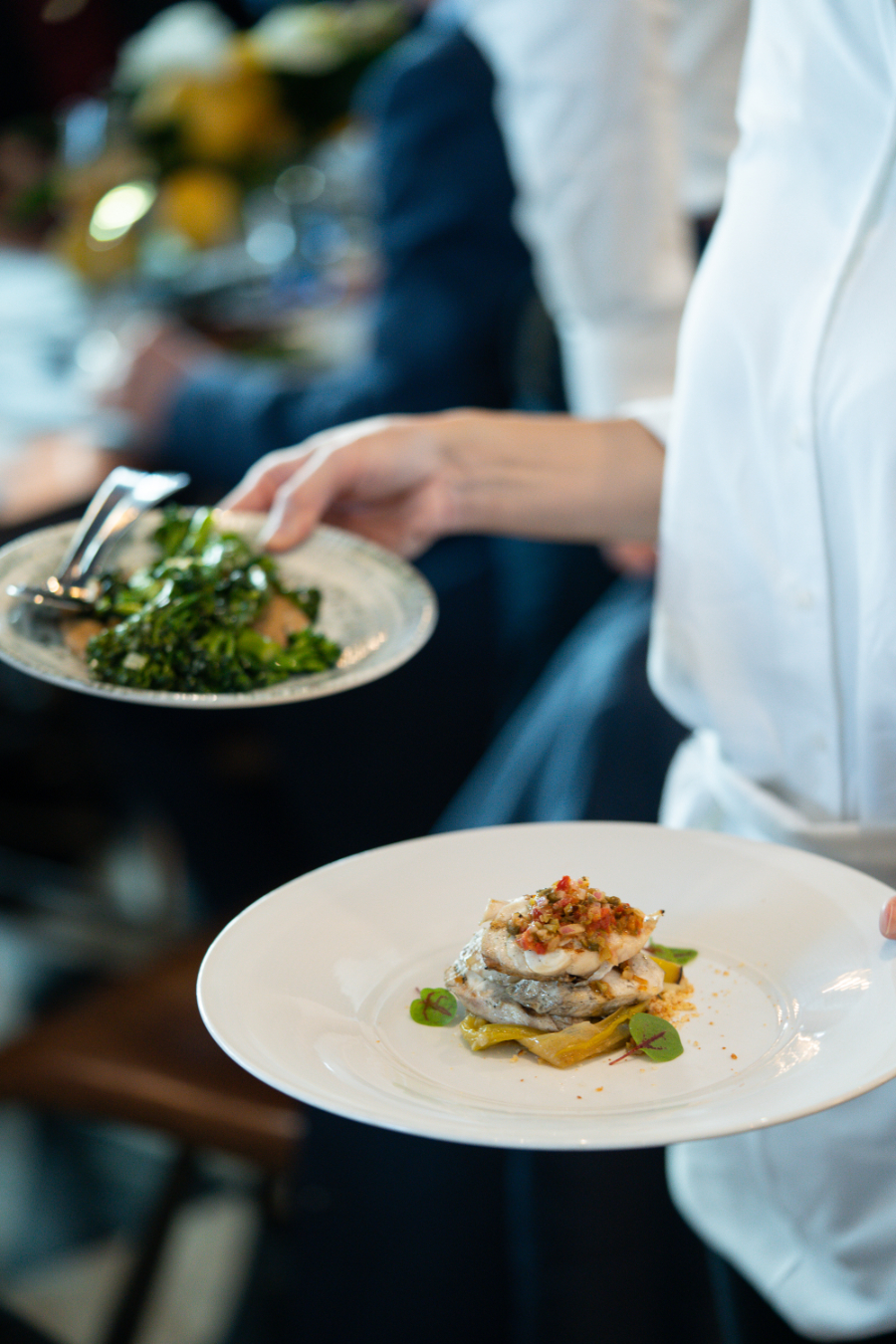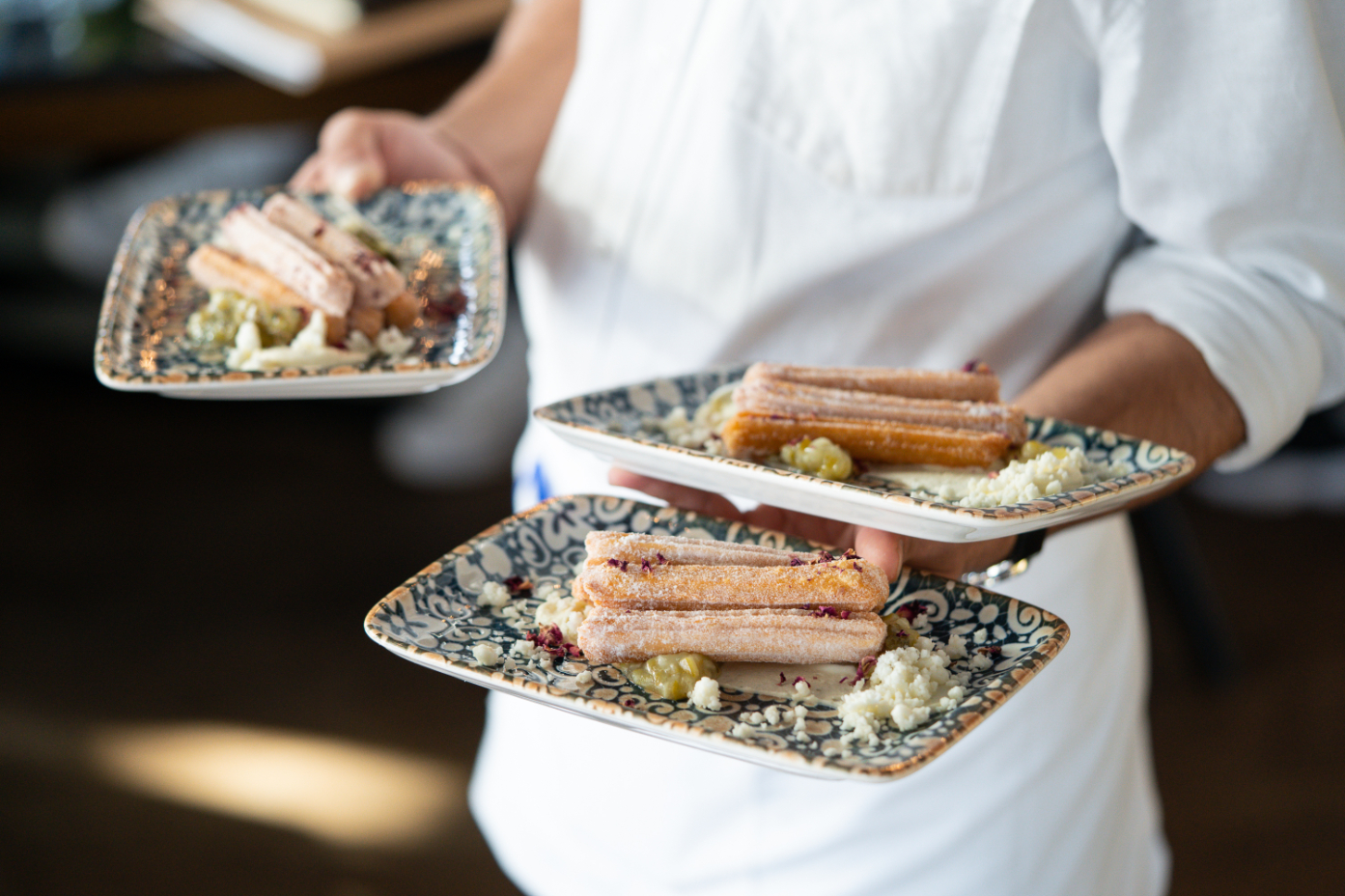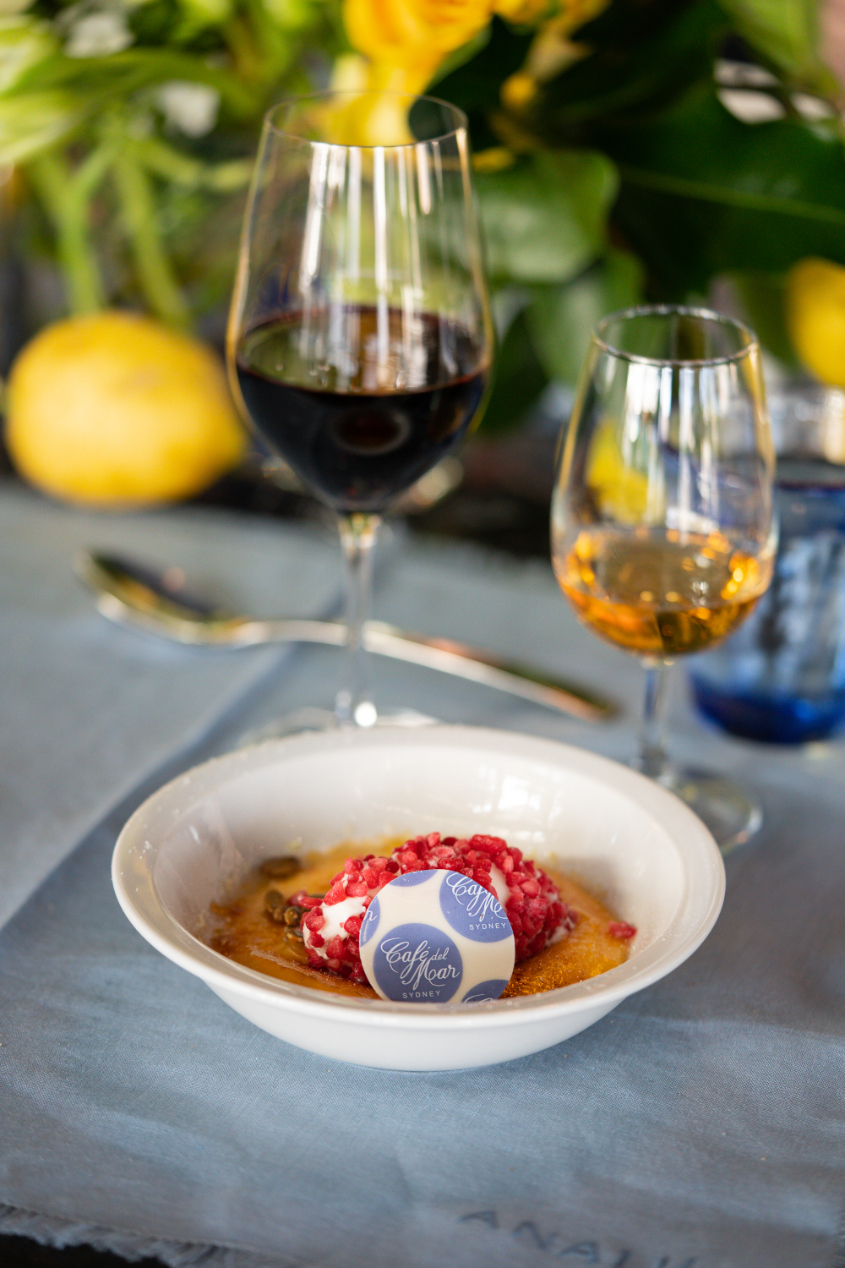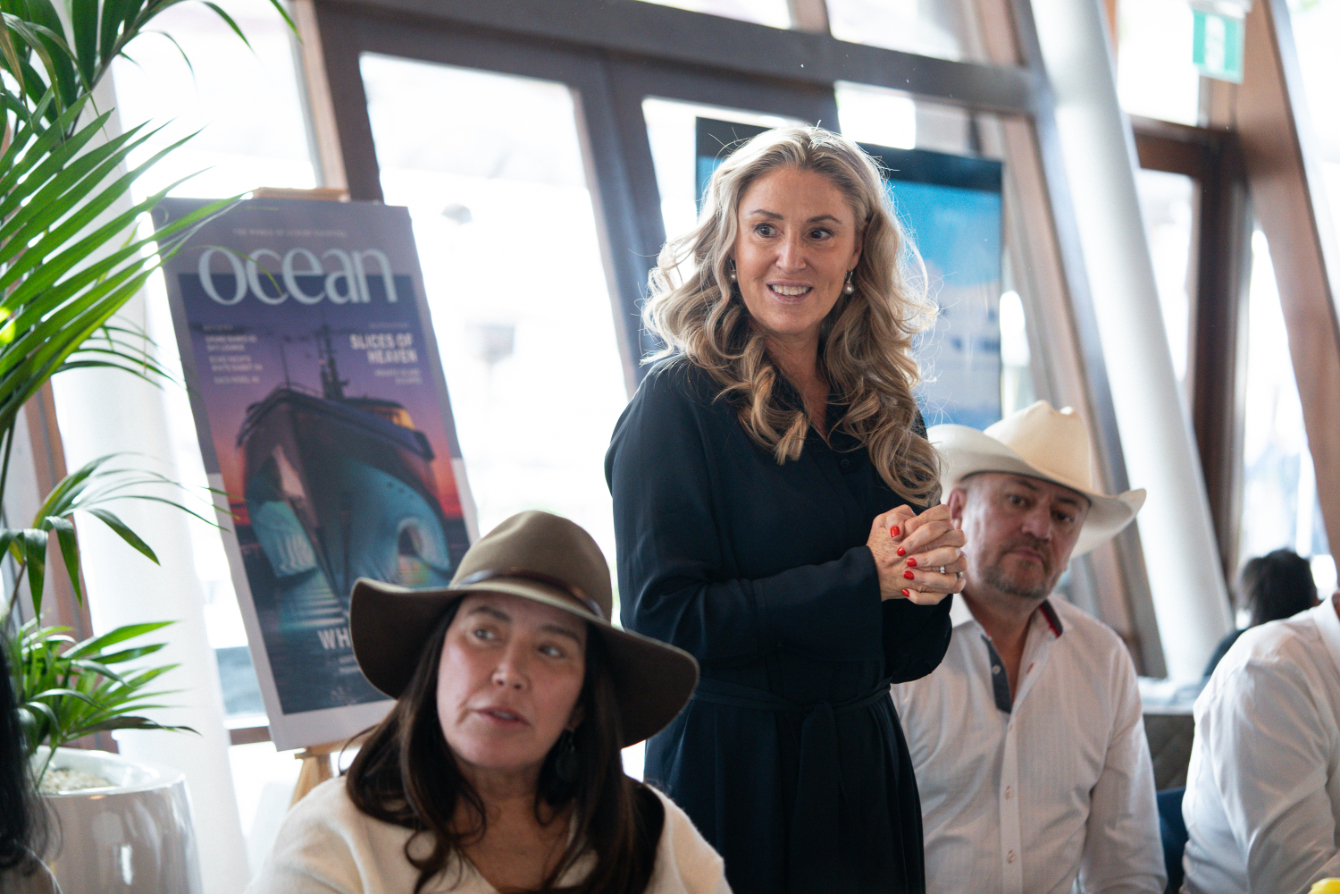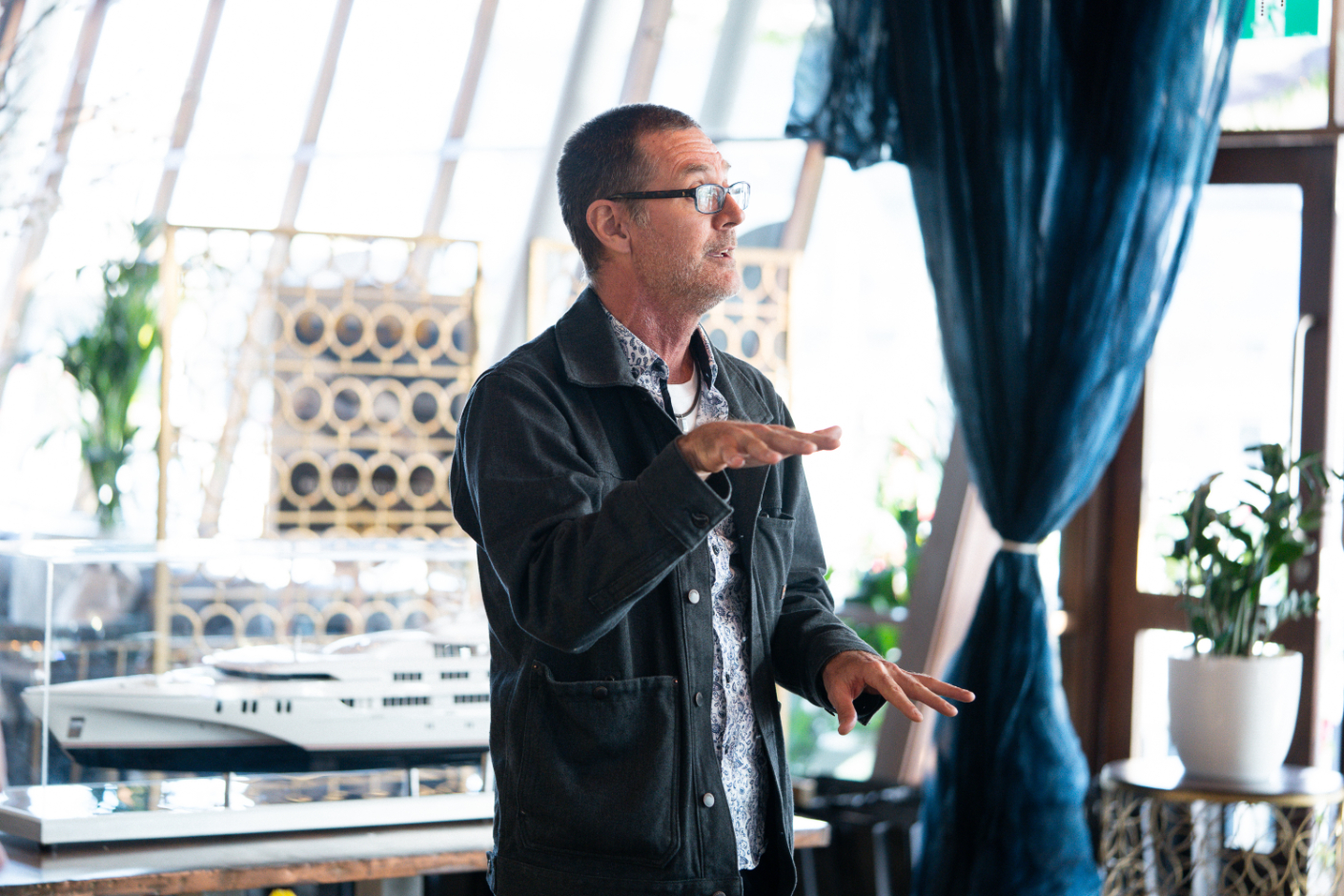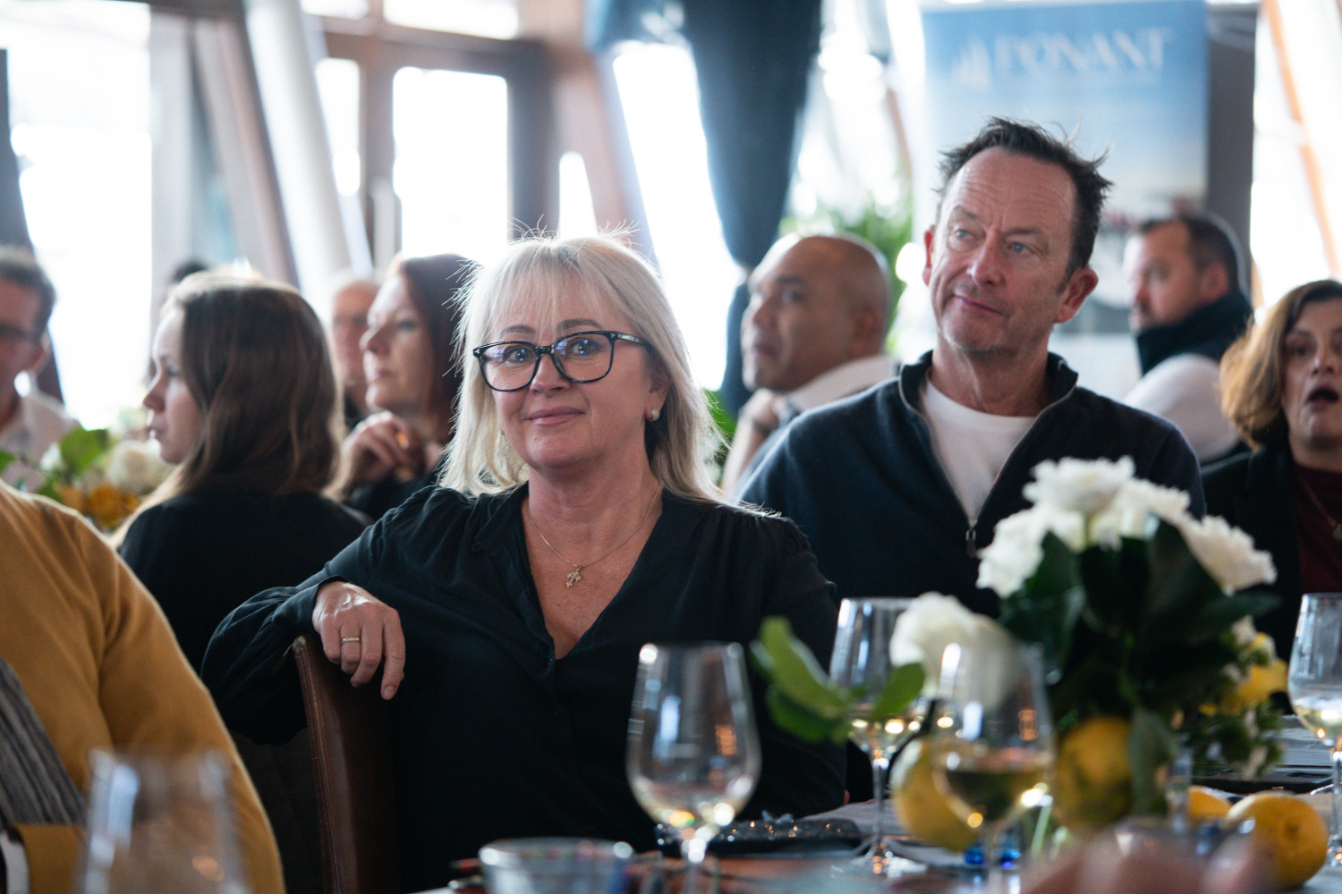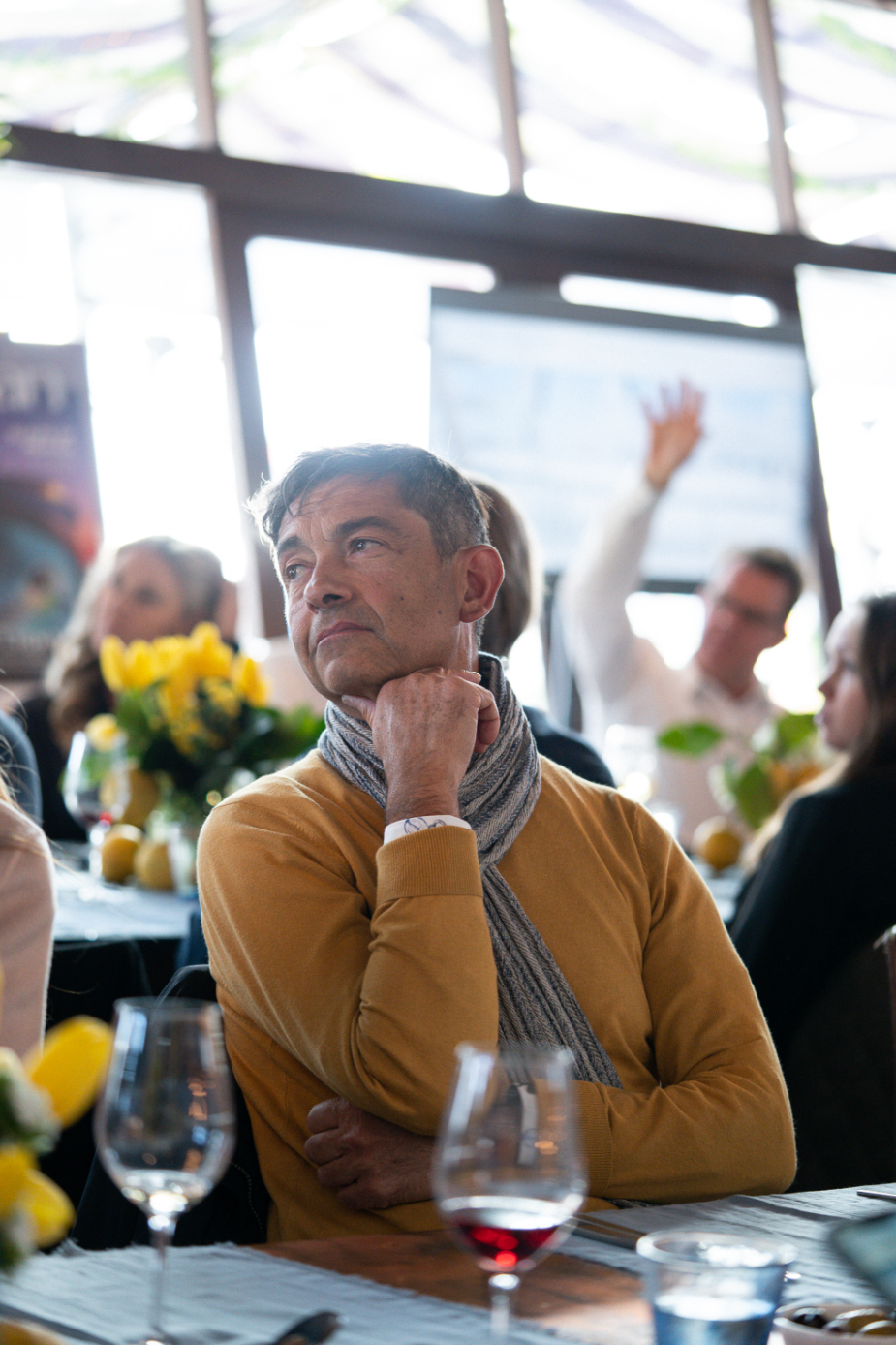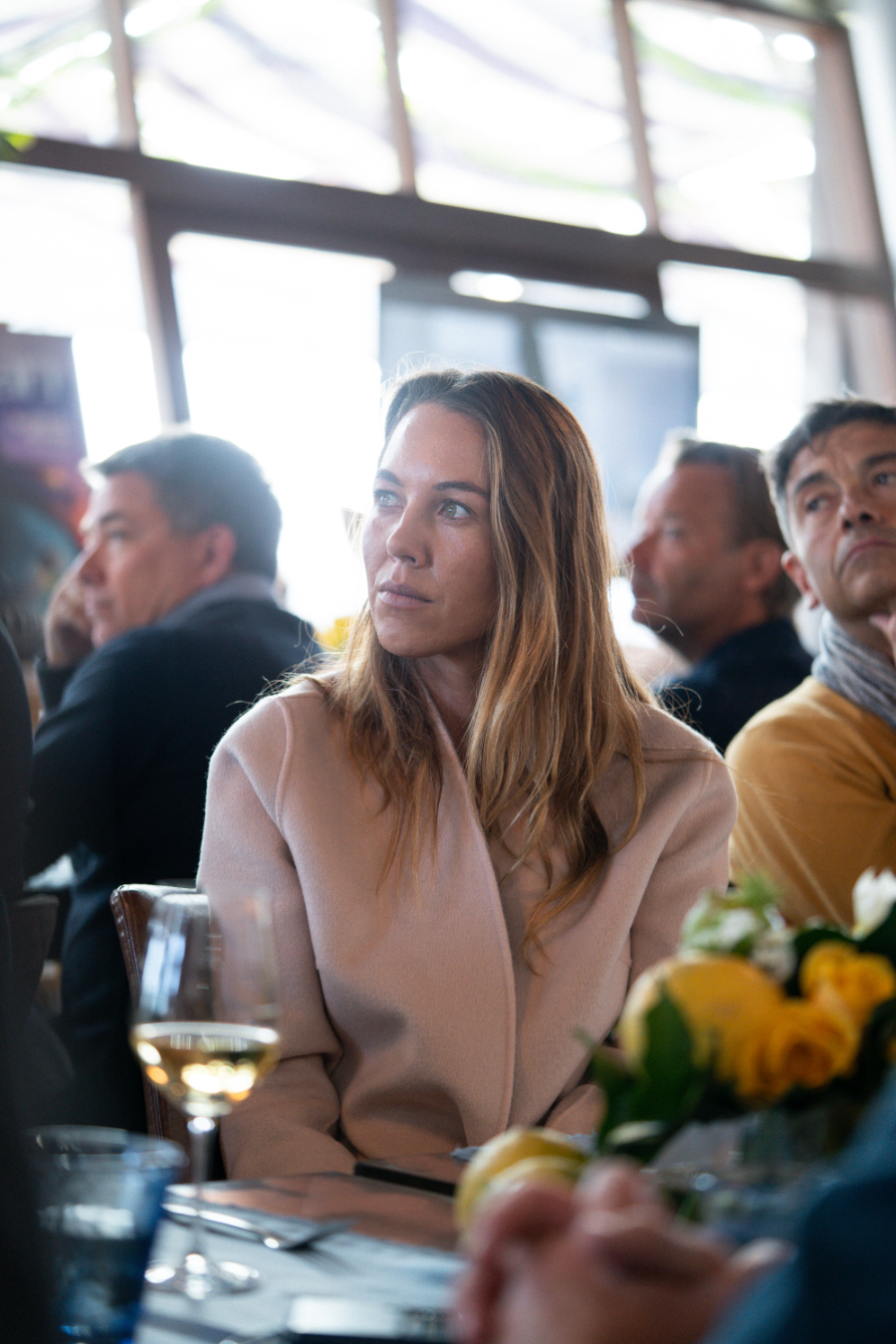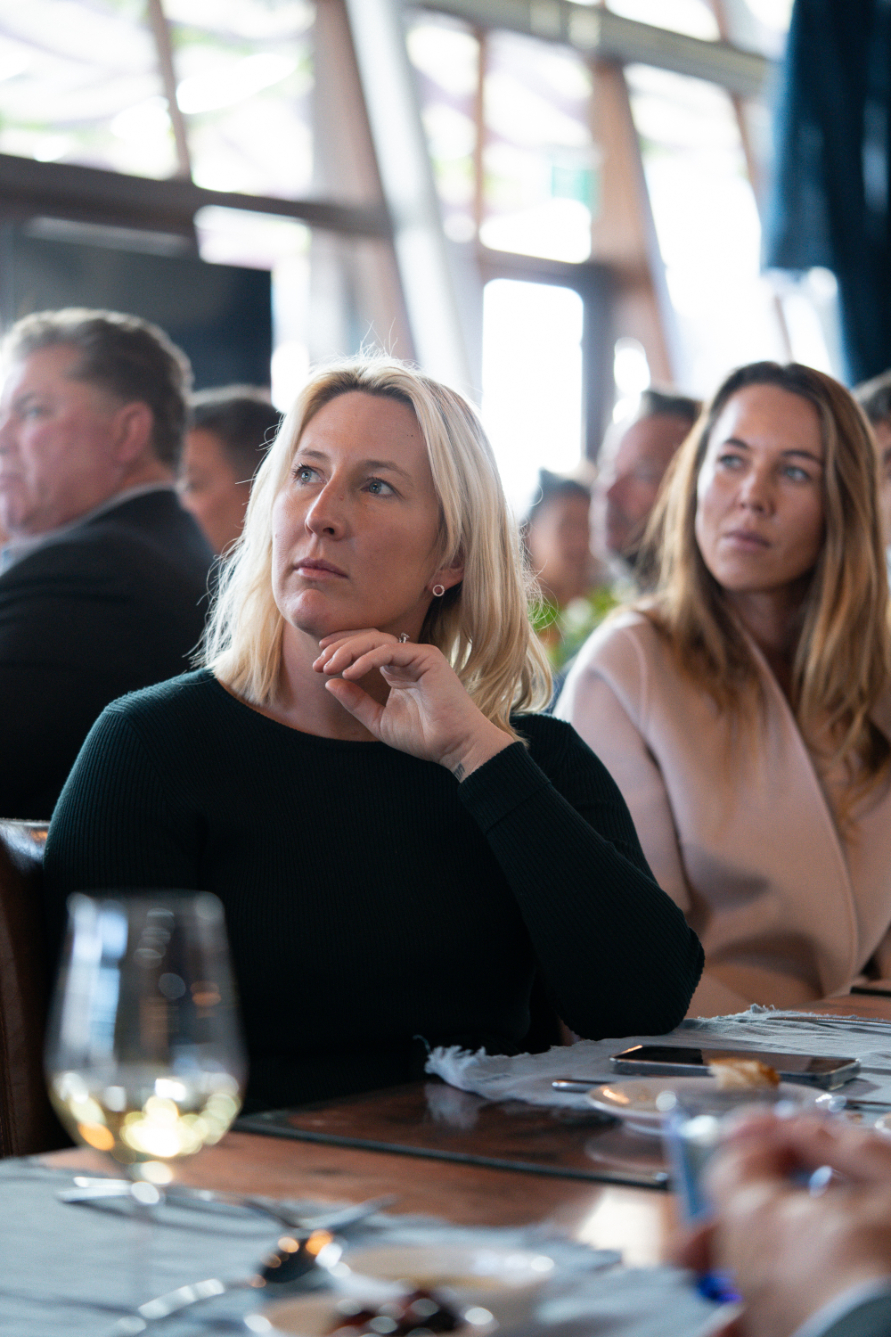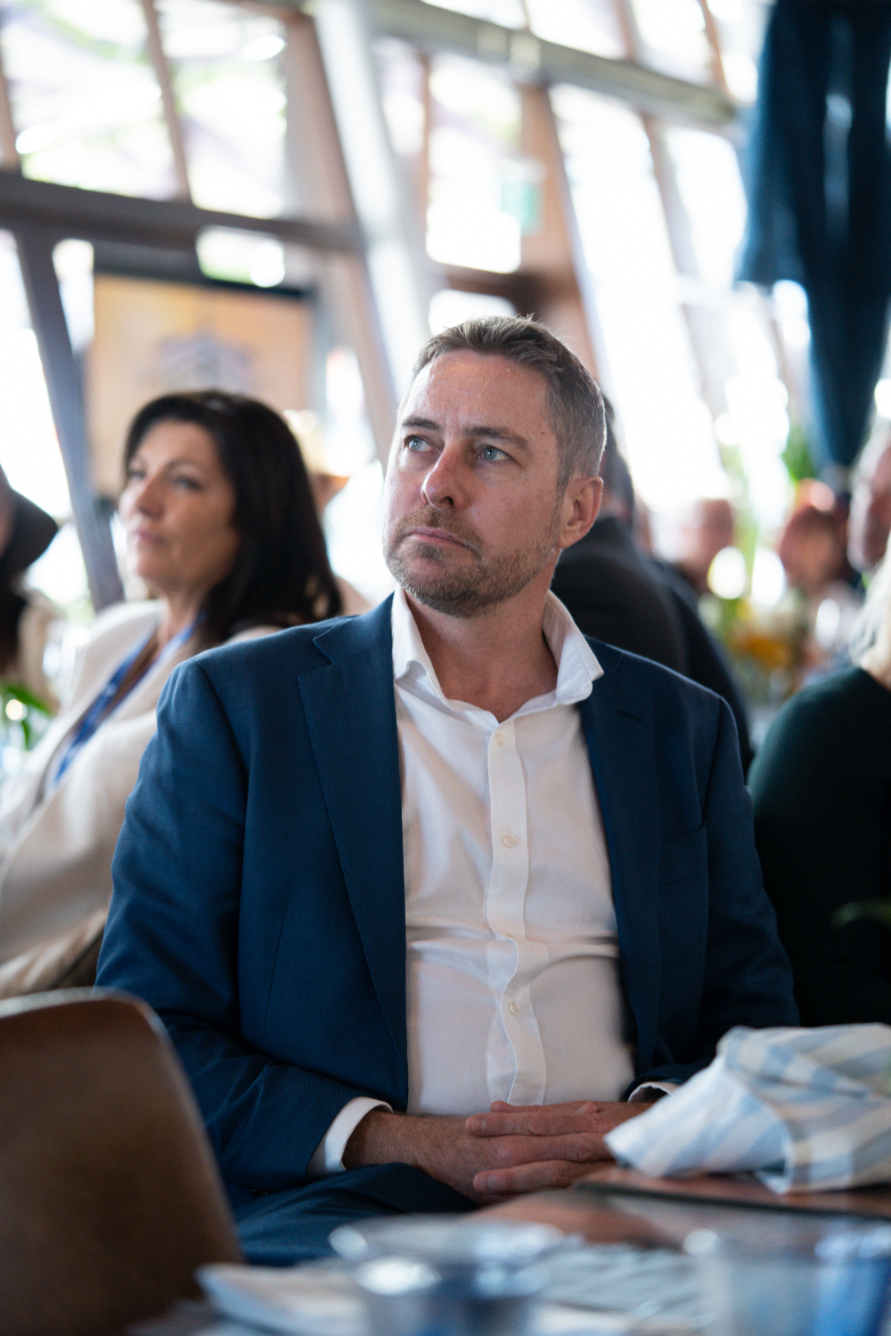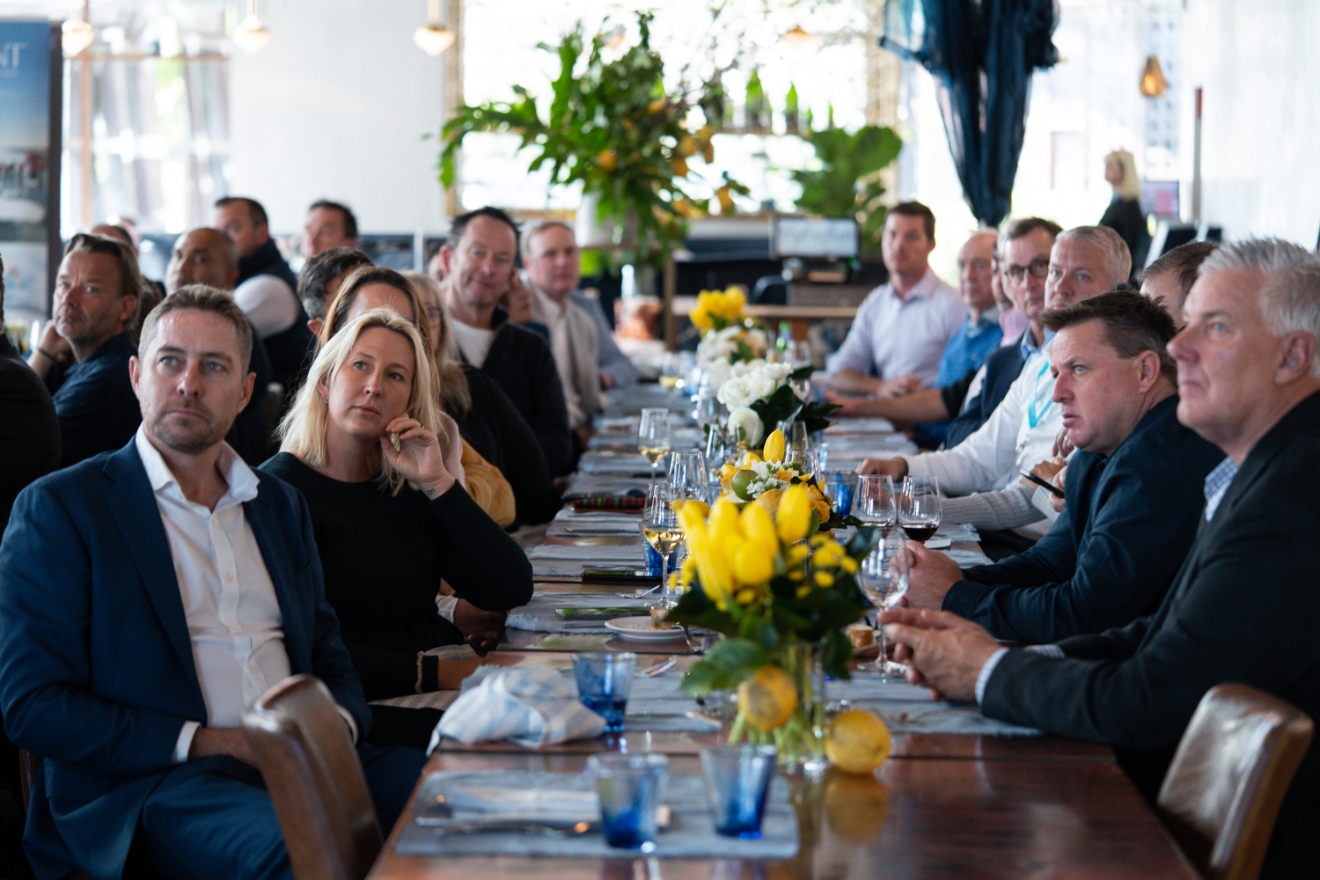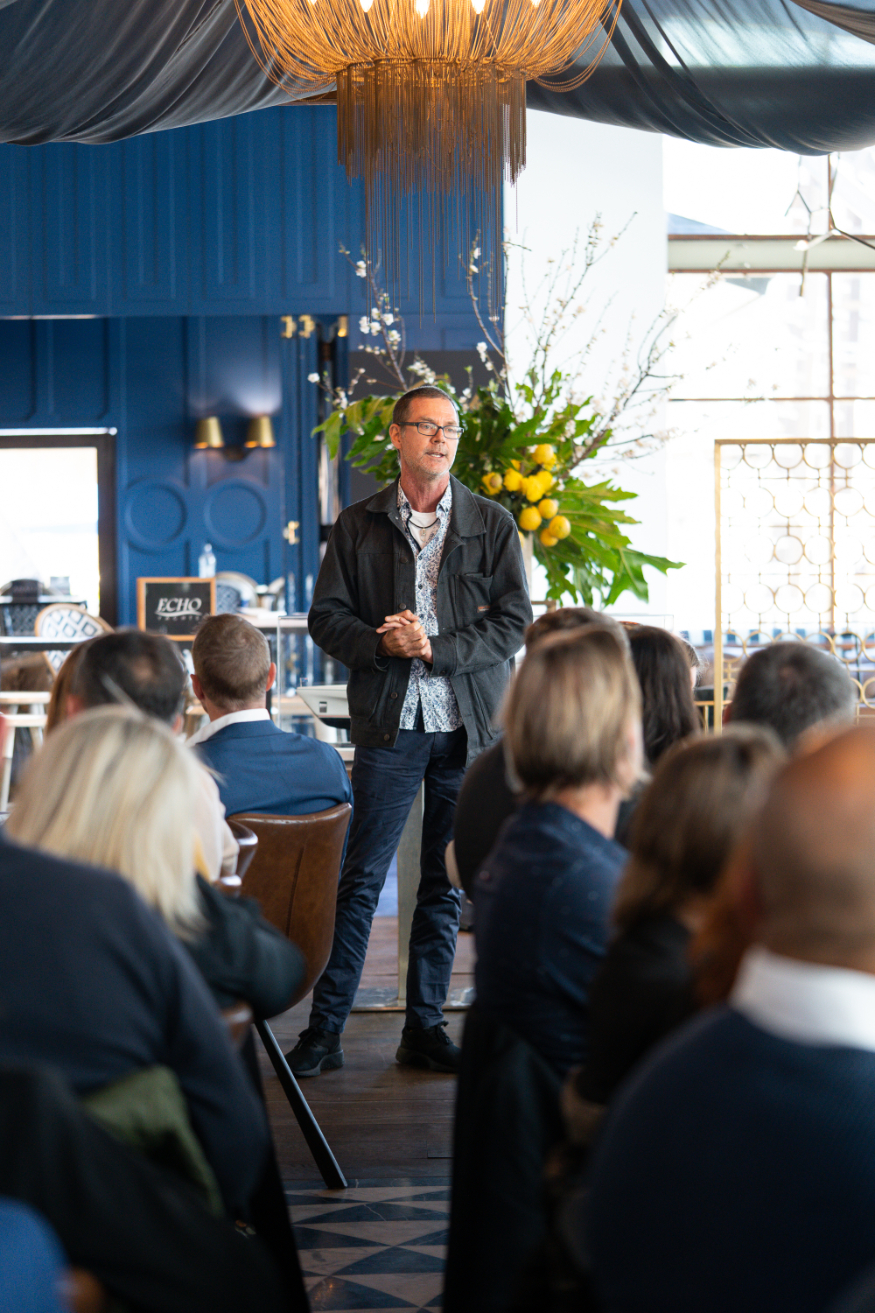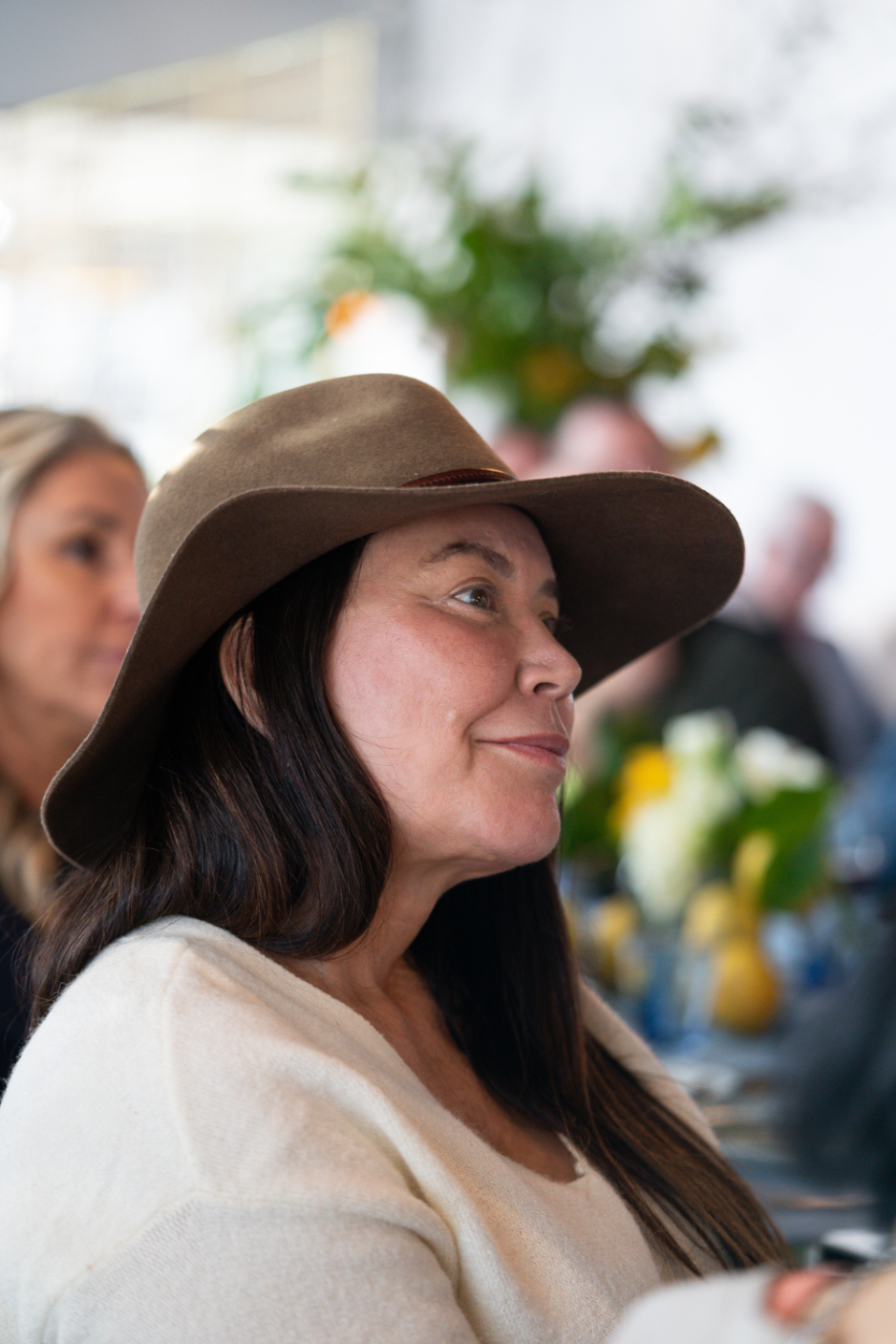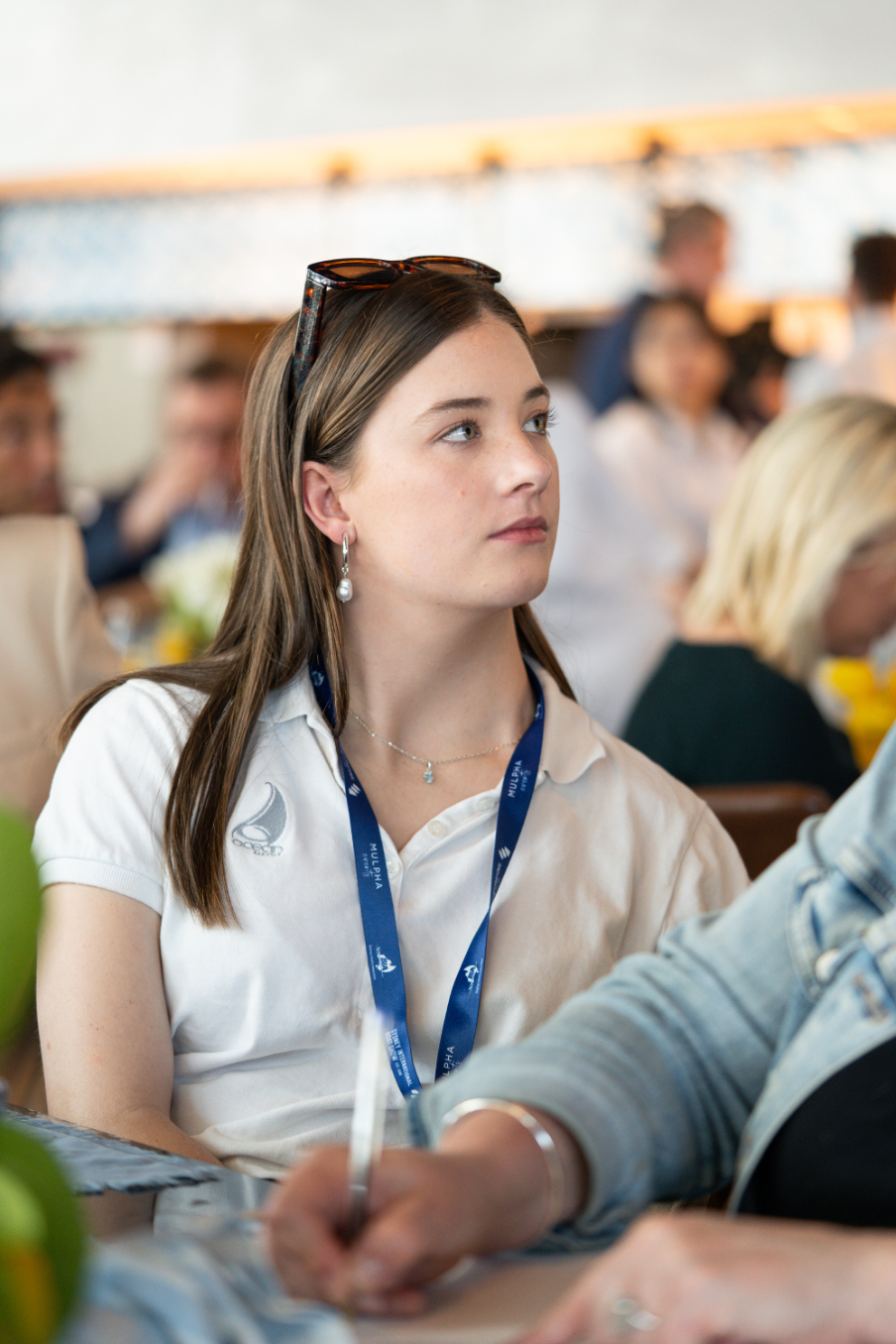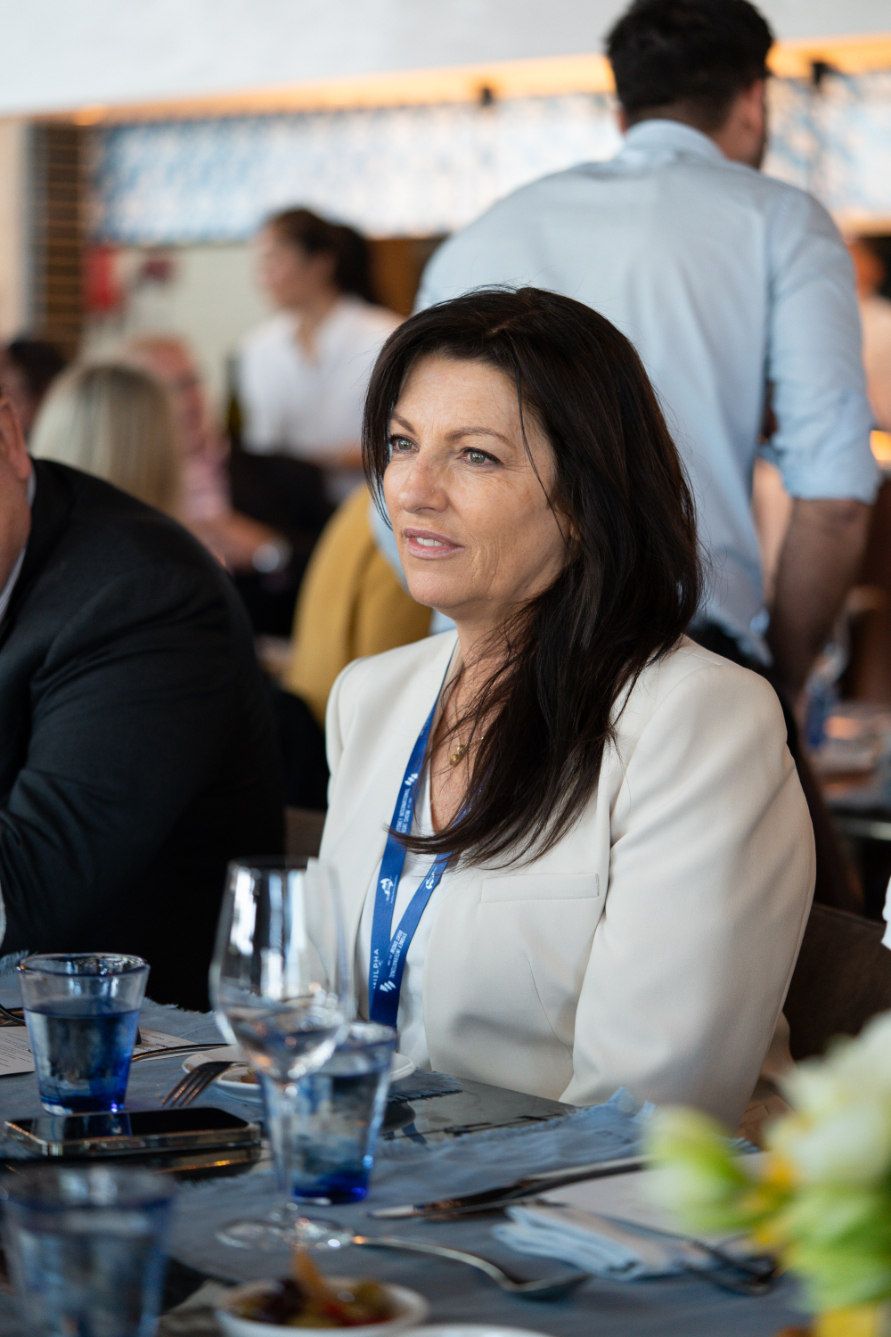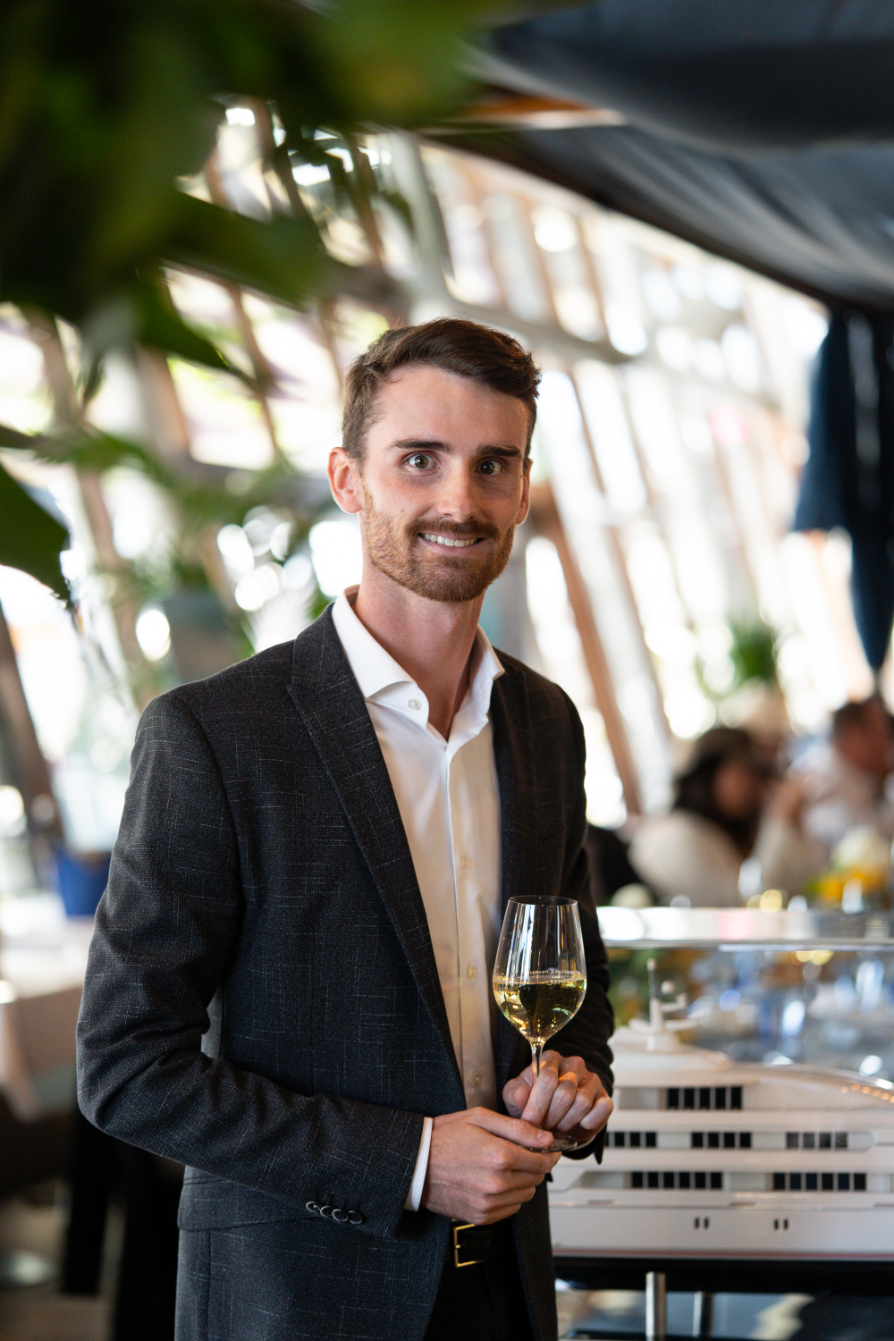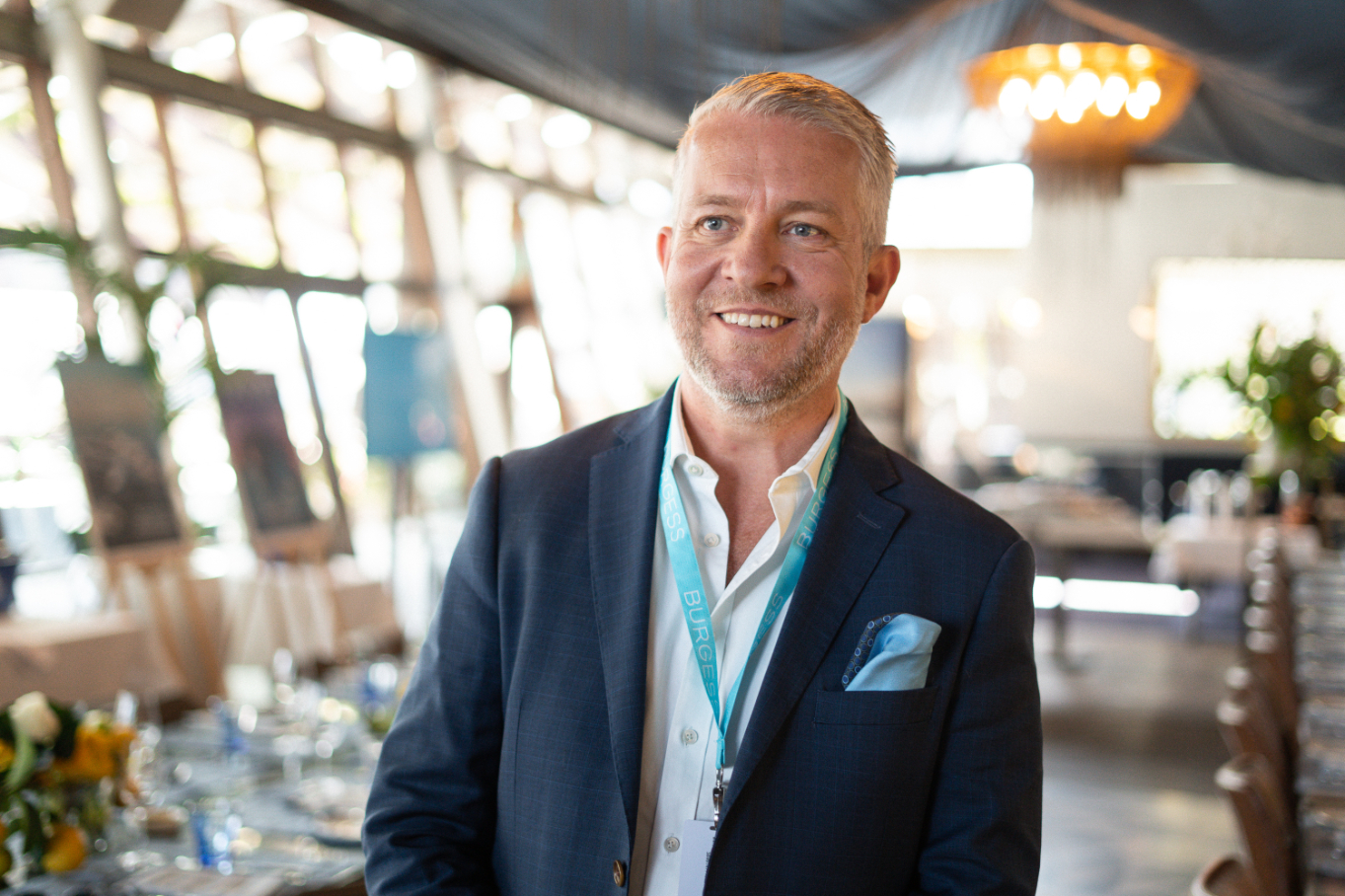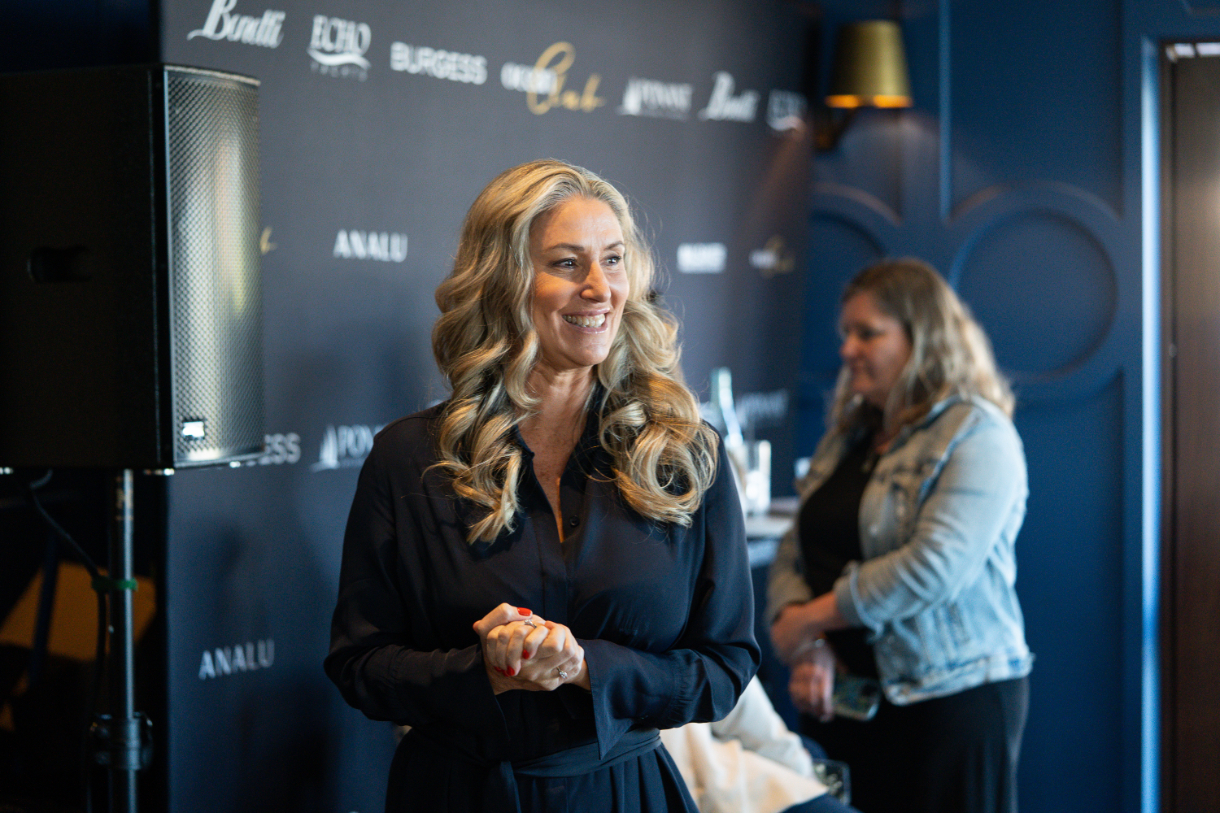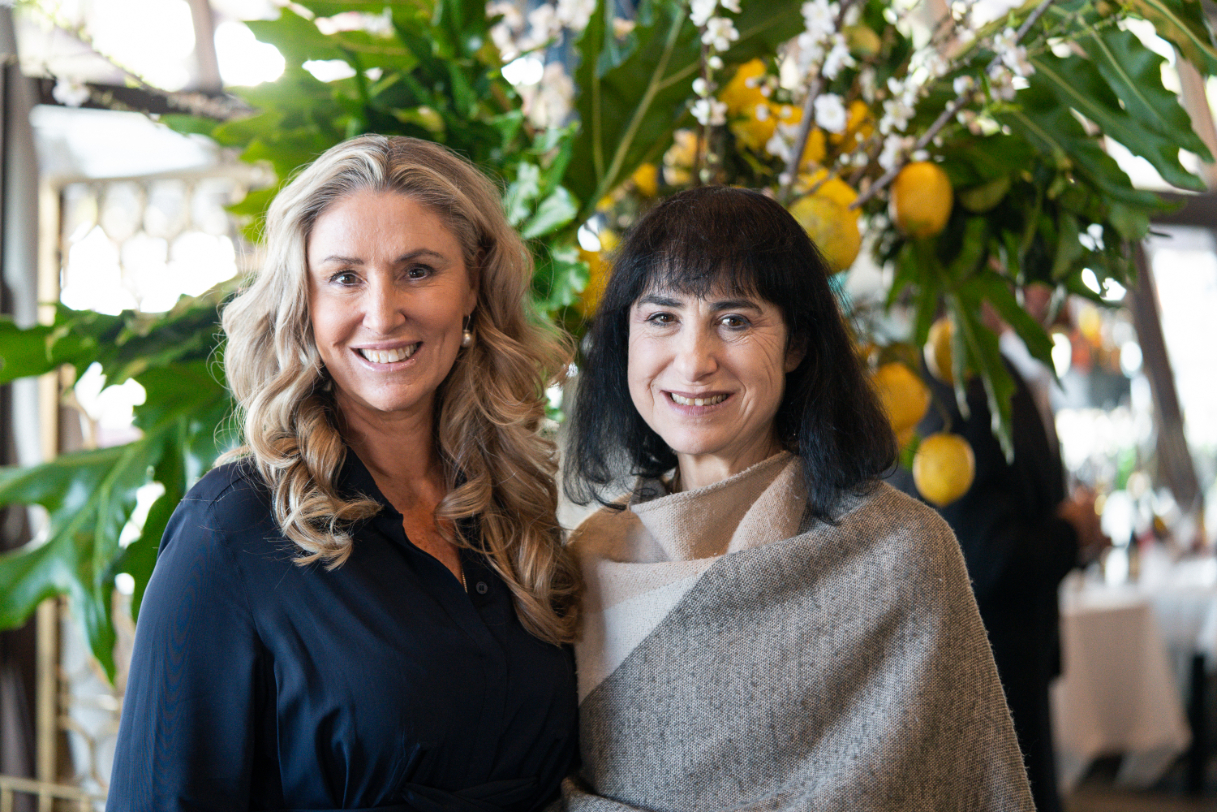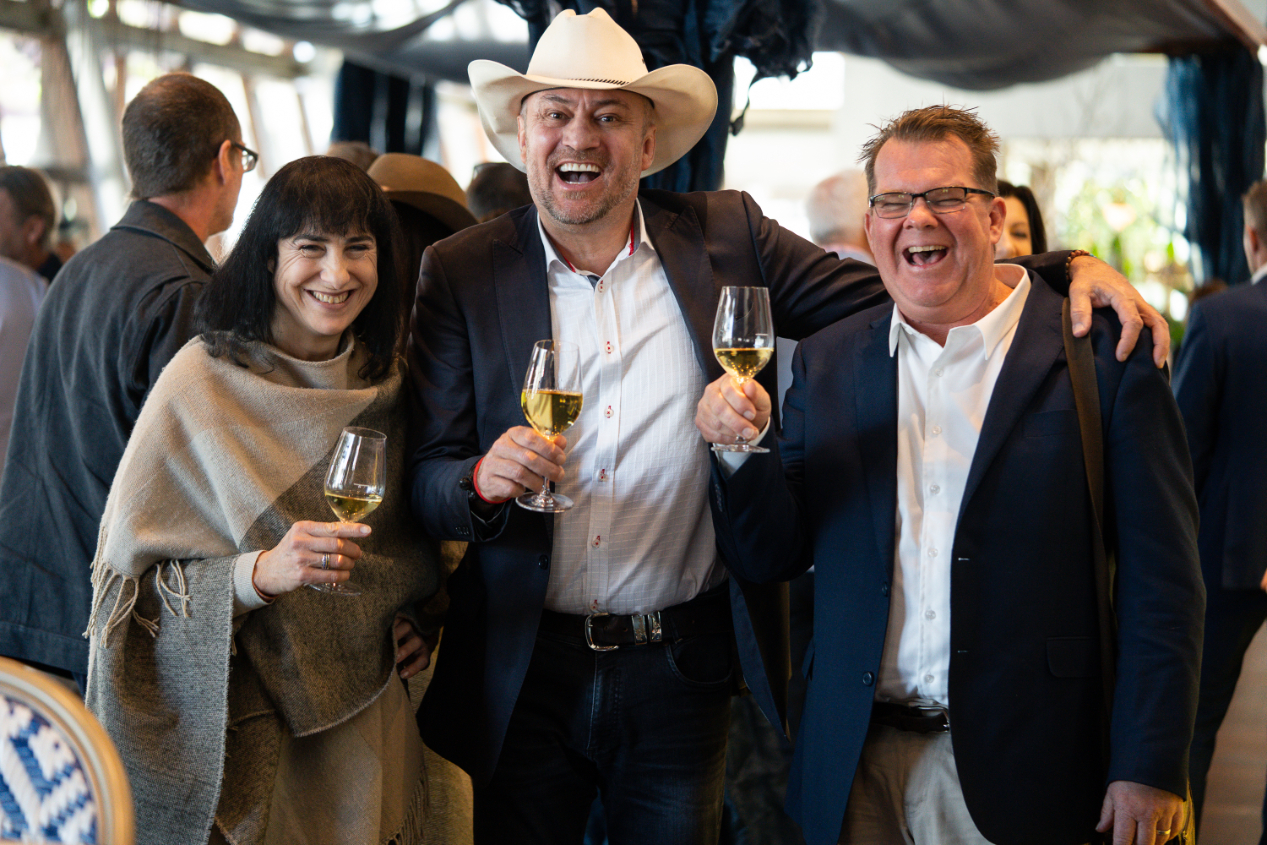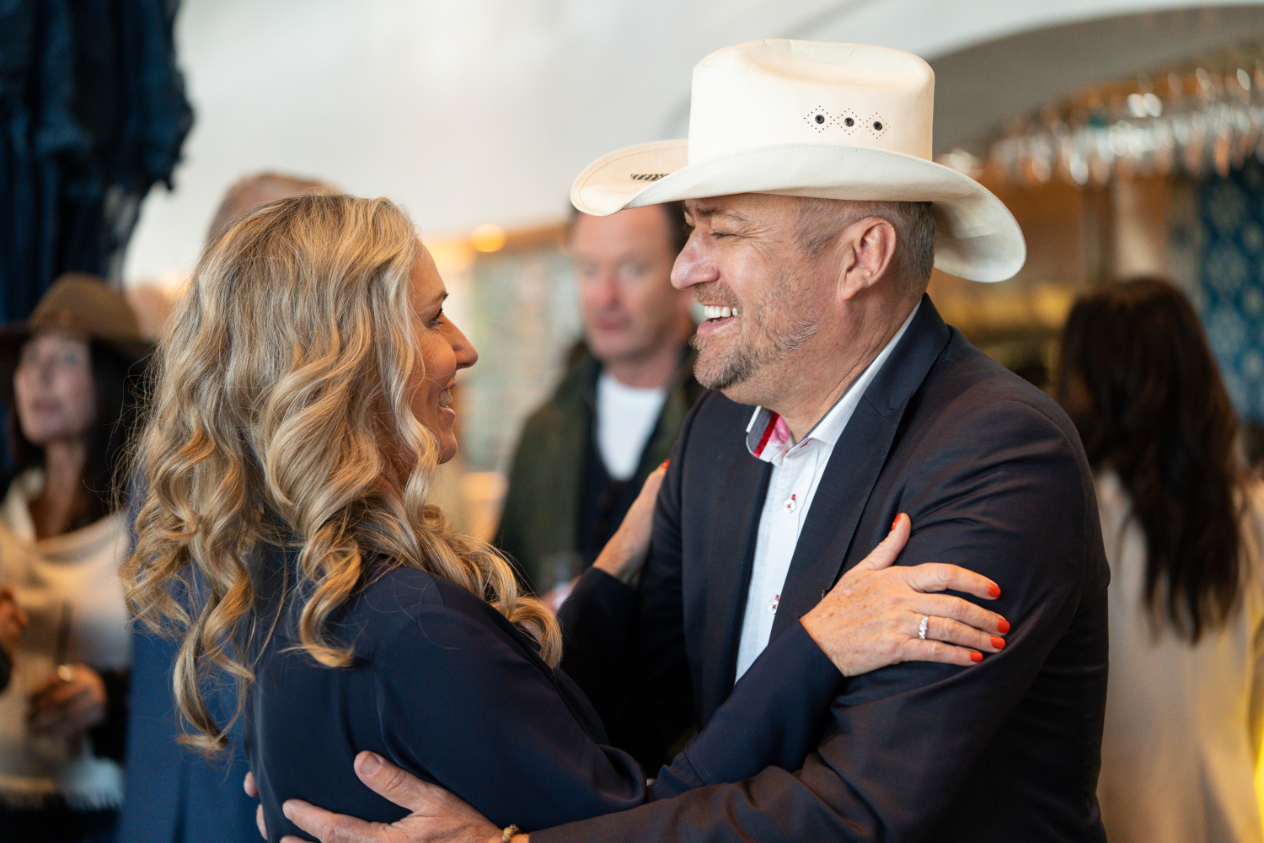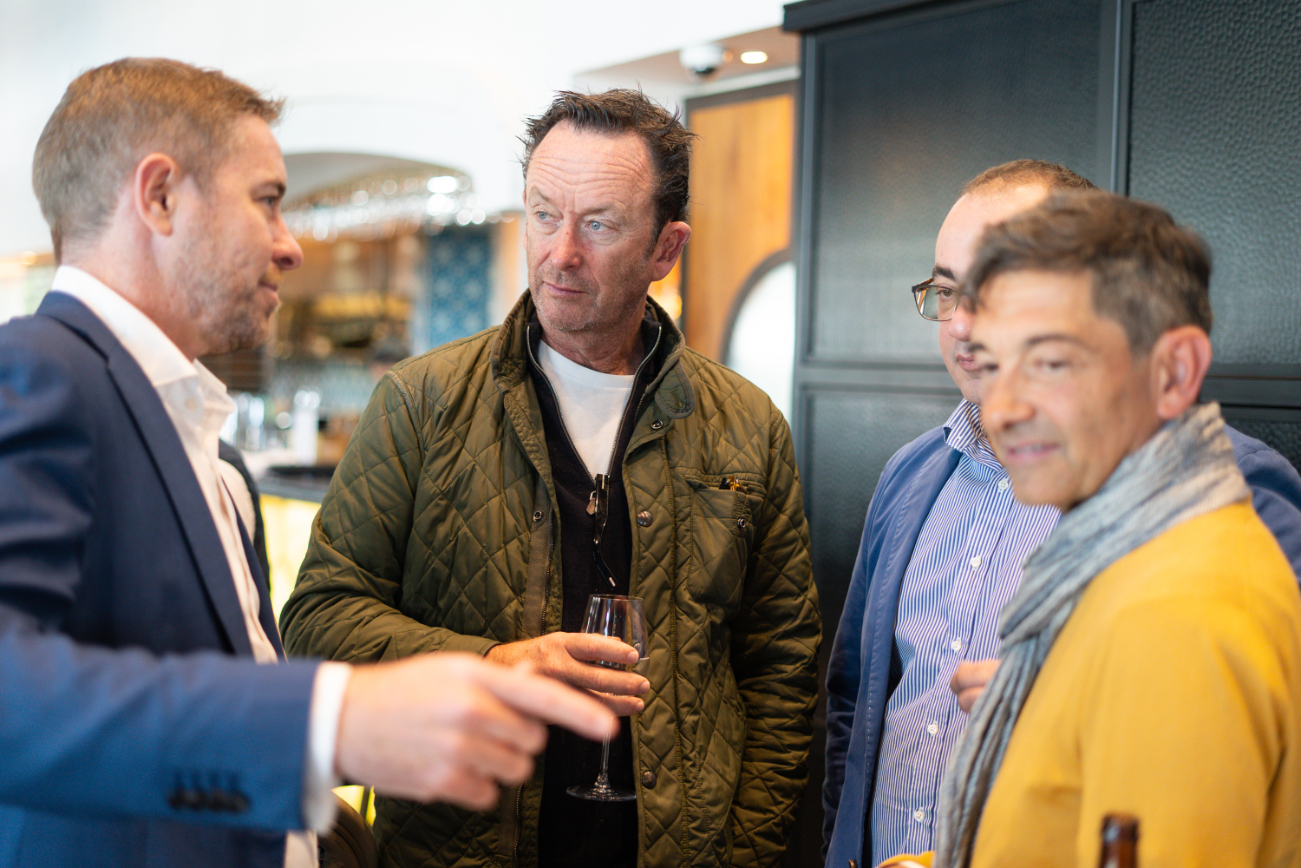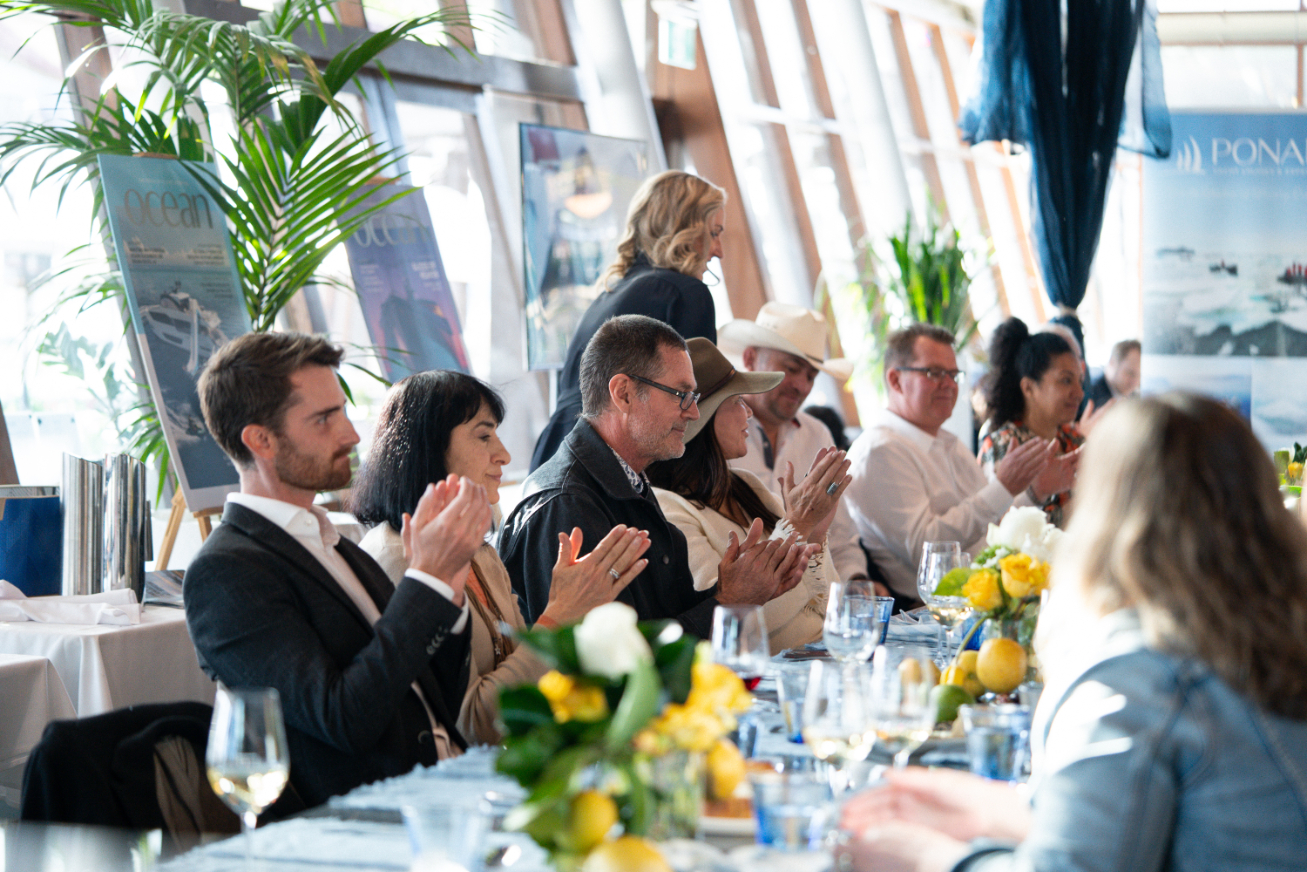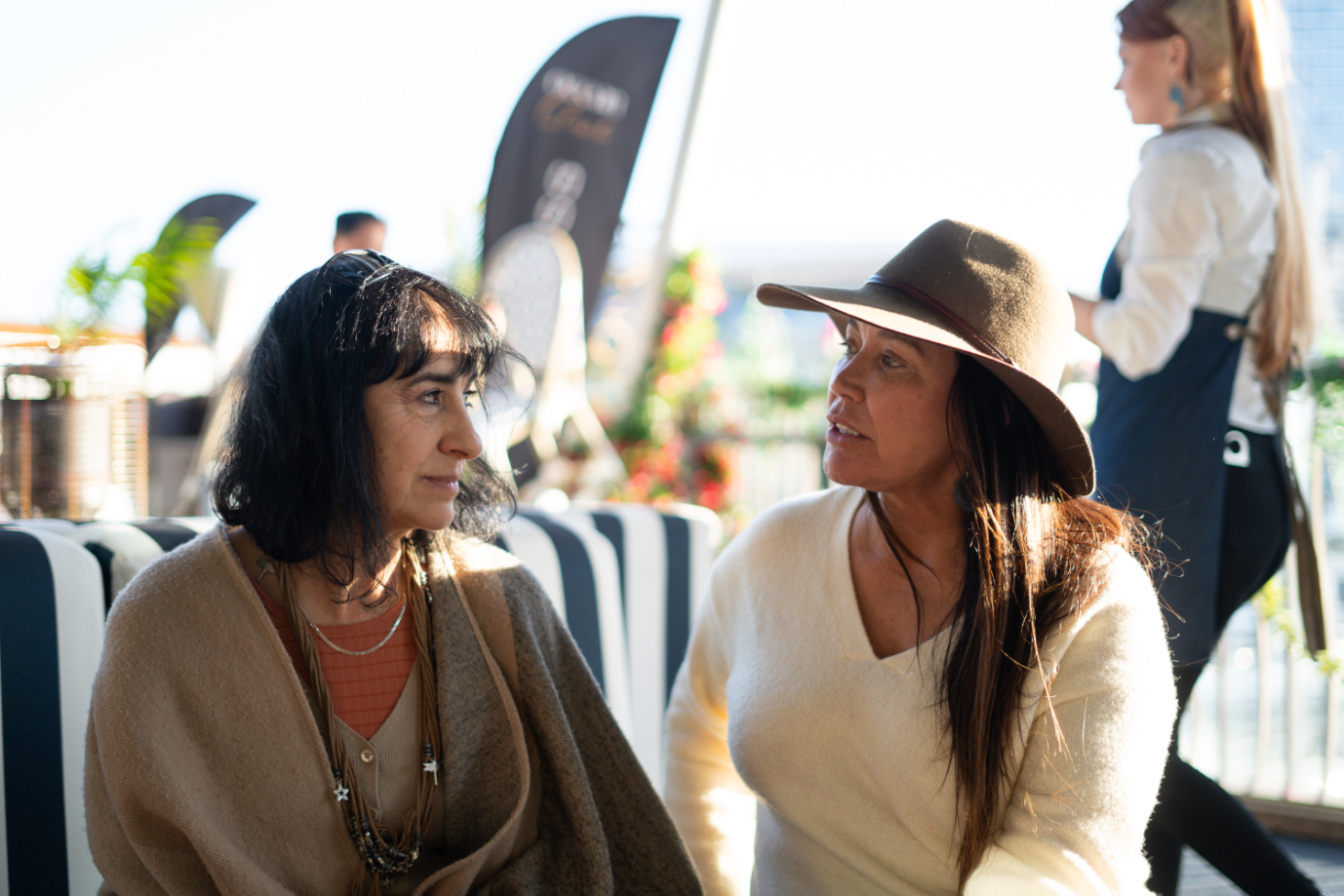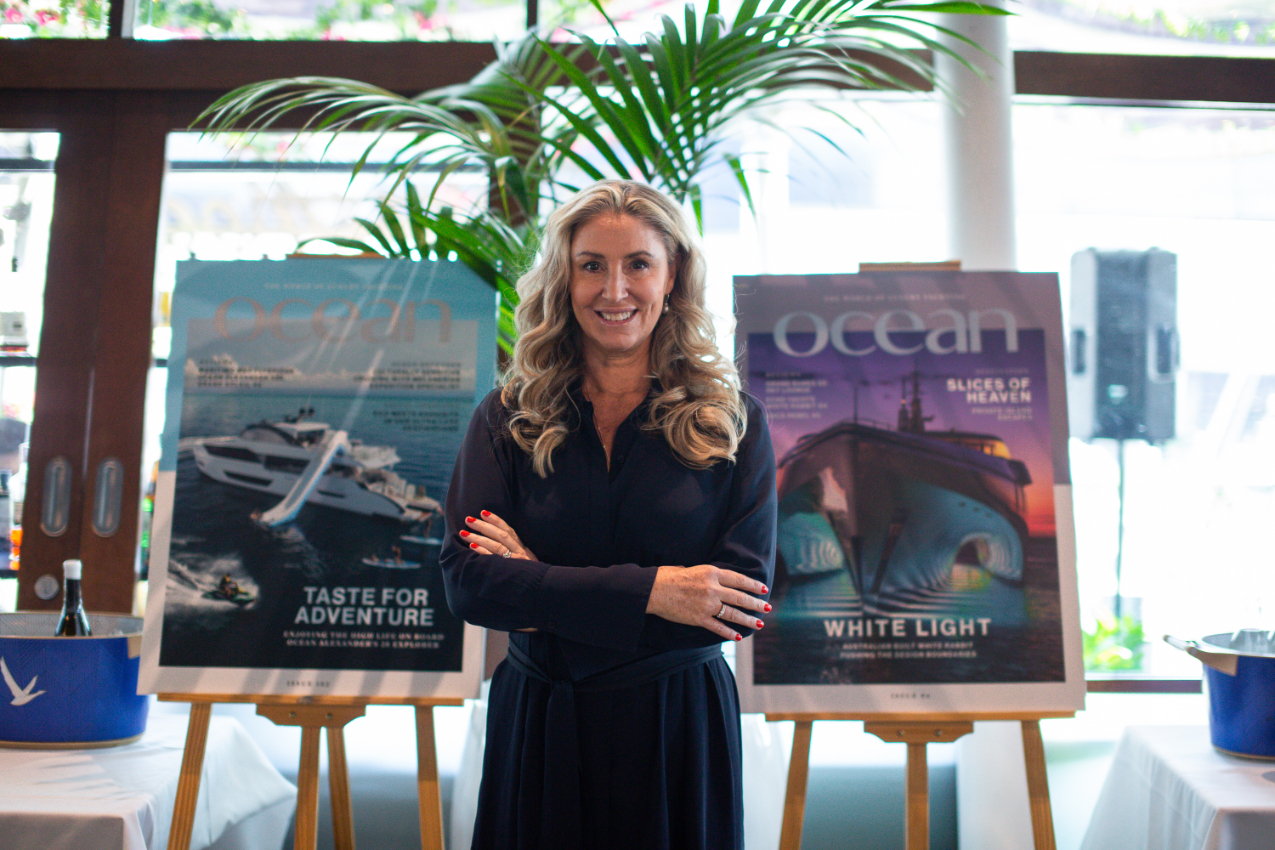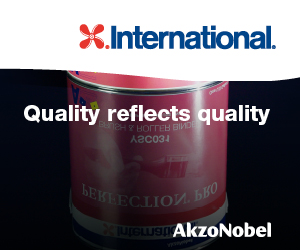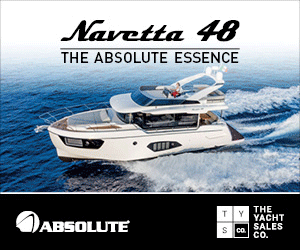Connect, collaborate, conserve
For Ocean Media's first Captains of Industry Roundtable event, held at the 2022 Sydney boat show, guests from all corners of the industry shared their thoughts on the issues that affect us all – not least, what we can do to conserve our oceans.
Photography by Roman Liebich
31 October 2022
With captains, VIPs, owners, industry representatives and experts all convening for the 2022 Sydney International Boat Show (SIBS), Ocean Media took this unique opportunity to launch the inaugural Captains of Industry Roundtable and Lunch on Friday 29 July.
As Ocean Media’s Founder and Managing Director Hillary Buckman explained, “My aim has always been to connect owners with our industry champions, encouraging collaboration while conserving our beautiful ocean playground. We made a great start at the Roundtable, and I look forward to where this synergy will lead.”
The goal of the Roundtable event, an open discussion led by several key participants, was to host a relaxed space in which guests could contribute to a robust discussion on the state of the yachting industry in Australia and internationally.
The day began with a moving Acknowledgement of Country by Dr Andy Lewis, Executive Director of the Coral Sea Foundation, before the keynote speakers – Francesca Rubi, Chris Blackwell and Angela Pennefather – led the conversation. Guests generously contributed their experience and offered ideas about how the industry can continue to move forward.
Owners and Crew
With a career history as a purser on 90-metre-plus yachts all over the world and now an industry ambassador, Francesca Rubi opened the topic of Owners and Crew and how we, as an industry, can ensure a seamless and unforgettable experience for everyone on board.
Rubi noted, “Crew who have worked overseas want to come home to be closer to family and friends, but there’s not the same level of compensation as overseas, and it’s hard to maintain the same level of service given the staffing problems facing the industry.”
Guests, including management staff and owners, contributed candidly to the conversation, balancing experience with opinion in an open and respectful environment.
“It’s a problem, but it’s a fixable problem,” noted Blue Robinson, and there seemed to be a genuine desire in the room to ensure the viability and vibrancy of the industry, including suggestions for training staff and encouraging the younger generation through work experience and study options, so everyone enjoys their time on the water.
Building Yachts in Australia
Next, industry stalwart Chris Blackwell from Echo Yachts led the discussion on building and designing yachts in Australia and how we can, in light of the global boatbuilding boom, return to the heyday when Oceanfast led the way.
Drawing on 24 years’ experience with Austal, SilverYachts and Echo Yachts, and with a passion for building custom superyachts, Blackwell gave an insight into Western Australia’s significant capabilities and highlighted the unique ability of the state to produce one-off custom designs rather than series vessels as in Europe.
“We’ve got great design and great build capability here, the quality is very good but it’s also very innovative,” noted Blackwell, who gave the example of the 84-metre trimaran White Rabbit, which is 40 percent more fuel-efficient than traditional monohull superyachts of the same gross tonnage volume.
“We’re doing some amazing things – don’t underestimate what you can achieve in Australia if you would like to design and build here,” Blackwell emphasised, handing over to designer Sam Sorgiovanni, who worked for the iconic Jon Bannenberg and came up through the Oceanfast ranks.
“Australians may be isolated geographically, but that isolation brings innovation,” affirmed Sorgiovanni, who stated that in terms of “construction, design and naval architecture, we have some of the best of the world here.
“We are world leaders, for example in aluminium construction, and we understand what owners want in this part of the world – there is a unique opportunity for owners to capitalise on what we have to offer.”
Again, the conversation turned to what we as an industry can do, this time how we encourage owners to build here, “particularly given the country’s political stability and established system of law,” noted Marcel Vaarzon-Morel from Vaarzon-Morel Solicitors.
Owners were also prompted to not just rely on new builds, but to also consider refits and modifications to existing builds, especially given the environmental advantages.
We would get to the environment shortly with Dr Andy Lewis’s update on the Great Barrier Reef over lunch, but in the meantime, it was cruising with a conscience with Angela Pennefather, founder of Melanesian Luxury Yachts.
Cruising with a Conscience
With a background in expedition planning, logistics, project management, operations management, provisioning and catering, Pennefather has a deep passion for sharing her love of Melanesia with superyachts while supporting local communities, a topic that highly engaged guests.
Explaining the significant impact owners can have in remote areas, where they are often one of the few means of logistical support, Pennefather says, “You can’t travel to these island nations and not be impacted.”
How can we do more was again the sentiment in the room, and Pennefather explained that focusing on connecting with a community and asking them what they need is the most appropriate and meaningful means of support.
For example, instead of spending $1,000 on books and pens, consider asking what the community might need first – they may suggest a $1,500 water tank, for example, which will have a lasting impact.
Even better, before you go, contact a company like Pennefather’s, which has links throughout the region – you might be able to transport a water tank instead, which a community may have been waiting for up to a year.
(For other ways yachts are supporting Melanesian communities, including work done by M/Y Pangaea sanitising a maternity ward, which will save up to ten lives a year, or work undertaken by M/Y Umbra that in ten days achieved three years’ worth of asset maintenance, see our Industry Profile on Pennefather in issue #102 of Ocean magazine.)
Most of all, by being culturally sensitive when travelling through these areas, which is best done by engaging an agent to advise, and eliminating plastic on board, which still has a long way to go, we can all make a difference.
As Pennefather says, “We all have a chance to do something positive.”
And, with that, we broke for lunch. With the ideas most pertinent to each of us mulling in our minds, we were connected by the common theme of what can I do in my sphere of influence to have an impact, to serve the industry, to improve the way things are done, to help others and preserve the beautiful oceans we sail?
Reasons to be hopeful
As the audience moved from the Ocean Lounge to the exquisitely laid dining tables courtesy of Analu in the main space of Cafe Del Mar, Dr Andy Lewis from the Coral Sea Foundation addressed the audience once again, this time as guest speaker.
Based on Magnetic Island in North Queensland, Lewis holds a PhD in coral reef ecology from James Cook University and specialises in reef health on the Great Barrier Reef, which he has been actively monitoring for the last thirty years.
Among other projects, Dr Lewis created the award-winning Sea Women of Melanesia project in Papua New Guinea, which empowers Indigenous women with the training and equipment they need to lead reef management. He is now extending that work to Australia with the Sea Women Great Barrier Reef program.
In light of the imminent release of the Marine Science Report into the health of the Great Barrier Reef and often sensationalised media reports, Dr Lewis informed a captivated audience on the current status of the reef and the importance of independent monitoring and research. “The reef is still worth visiting,” he asserted.
“Despite significant disturbances, including cyclones, the report I believe will show the incredible resilience of the reef, and how it has evolved. From my experience, recovery capability is still intact and coral cover is at a record high – the transformation has been amazing.
“For those interested in cruising, I’m here to give people some hope that yes there are still threats to the Great Barrier Reef, yes, climate change impacts are going to keep coming, but there is a large expanse of the reef that is in good condition and we need to be doing everything we can to look after that.”
Answering the silent question in the room, Dr Lewis said, “There are three major actions that we can take. Obviously, we can play our part in reducing carbon emissions, we can lead the way in hydrogen and other renewables, we have a role to play in showing the world how to move forward.
“The two other things we can do is to fix up our water quality, there are still a lot of nutrients coming off the mainland from agriculture and other activities, and lastly, bring more of the Great Barrier Reef into Marine Protected Areas.”
Of course, questions for Dr Lewis came thick and fast, some of a scientific nature, some from a more environmental perspective. Naturally, guests wanted to know what they could do, to which Dr Lewis encouraged the importance of gathering data and getting involved in citizen science.
“What we’ve seen with the Sea Women of Melanesia project is the useful data that can be collected by relatively untrained visitors. Getting to these places is something you can do with your vessels – I encourage you to use your visits to have an impact.”
Time to connect
With the formal part of the day over, guests enjoyed a four-course degustation menu, with flavours from both sea and land accompanied by a fine selection of French wine, relaxing in the informal setting, sharing experiences and ideas for collaborations, and connecting with business cards or LinkedIn requests.
Ocean’s first Captains of Industry Roundtable was a huge success on all fronts. “I’m encouraged to hold this type of event a few times a year on different topics and themes,” said Buckman.
“In this way, the Roundtable can benefit even more owners, and they can get the most out of their yachting experience while gaining a deeper understanding of what the industry offers.”
“Of course, in-between, we look forward to catching up again at other networking opportunities and the international boat shows, including next month’s Cannes Yachting Festival and the Monaco Yacht Show.”
A sincere thank you to our Elite Lounge Partners – Burgess Australia, Echo Yachts and Ponant Luxury Cruises – as well as our Ocean Partners – Gold Coast City Marina & Shipyard, Analu Luxury Interiors, Pantaenius Yacht Insurance and Alsaker Private Buyers Agents – without whom the event wouldn’t have been possible.
“I’d like to encourage you to reach out to our sponsors, or any of our speakers, if you need any assistance or want to get involved,” urged Buckman. “They are the best in their field and today just proves the incredibly diverse, committed and talented group of people that make up this industry.
“We look forward to our next Captains of Industry Roundtable to continue the conversation,” concluded Buckman.
In the meantime, if you would like to join the Captains of Industry, please connect on LinkedIn.


